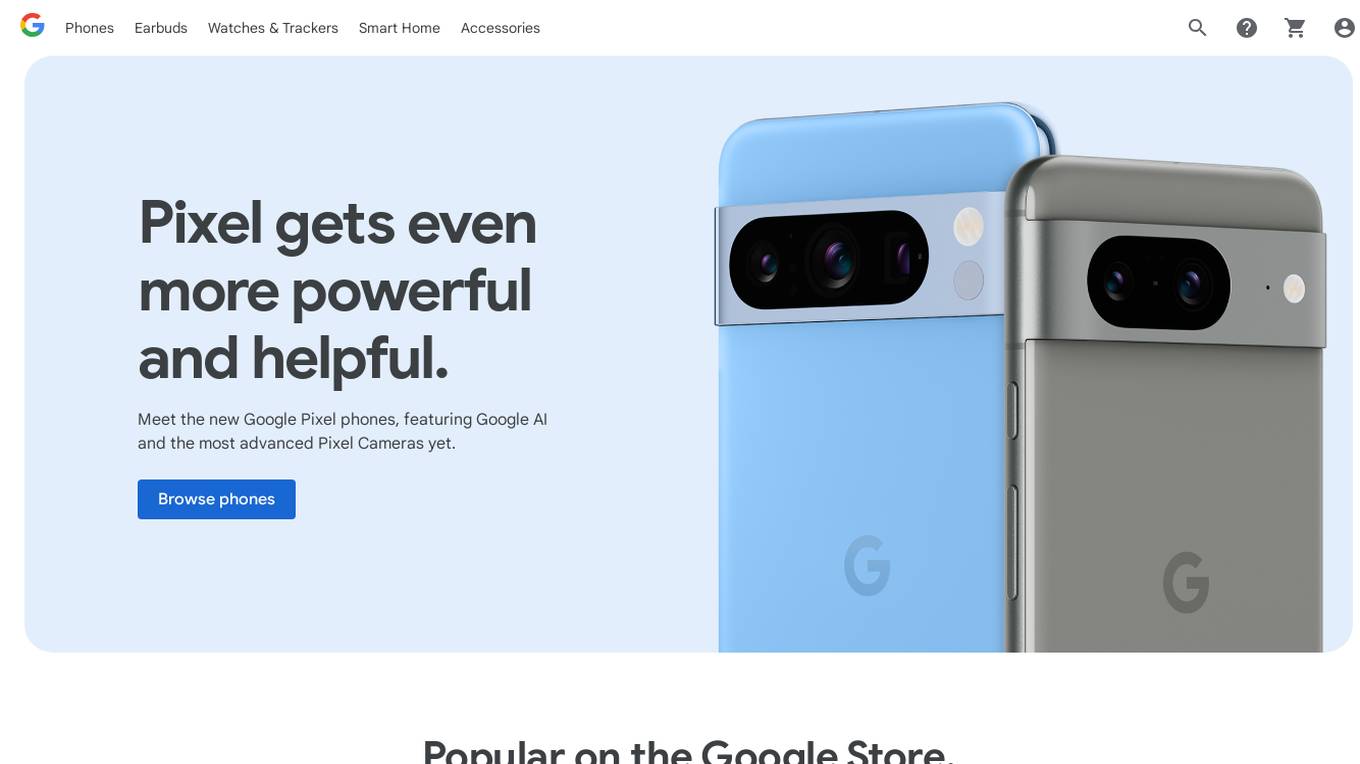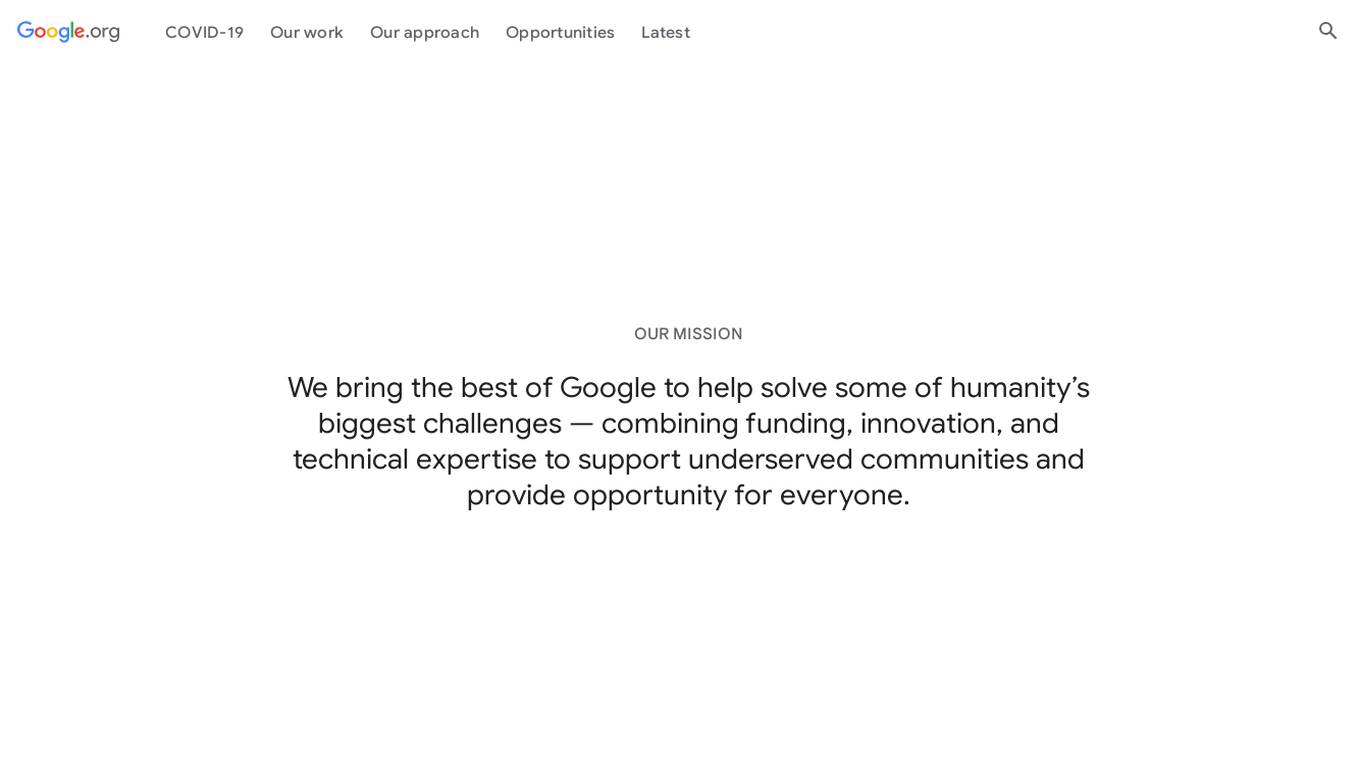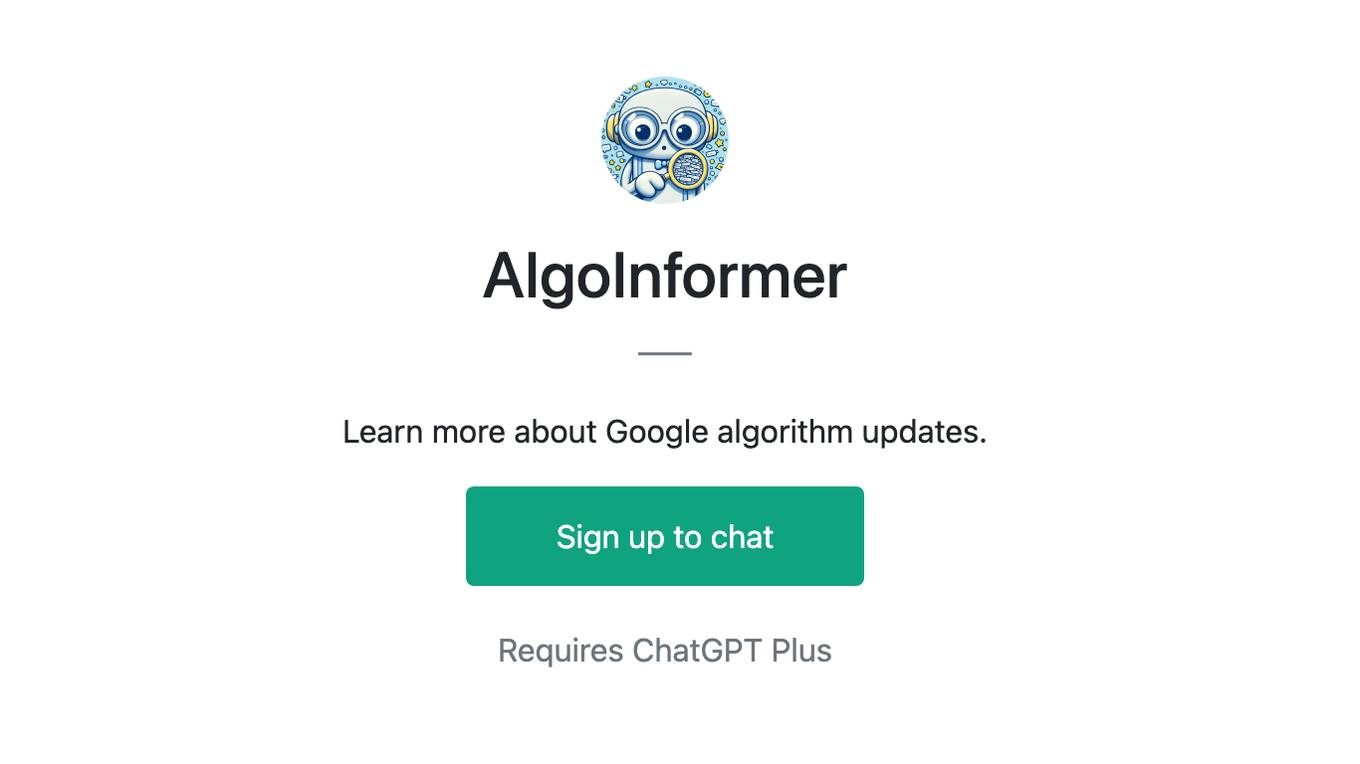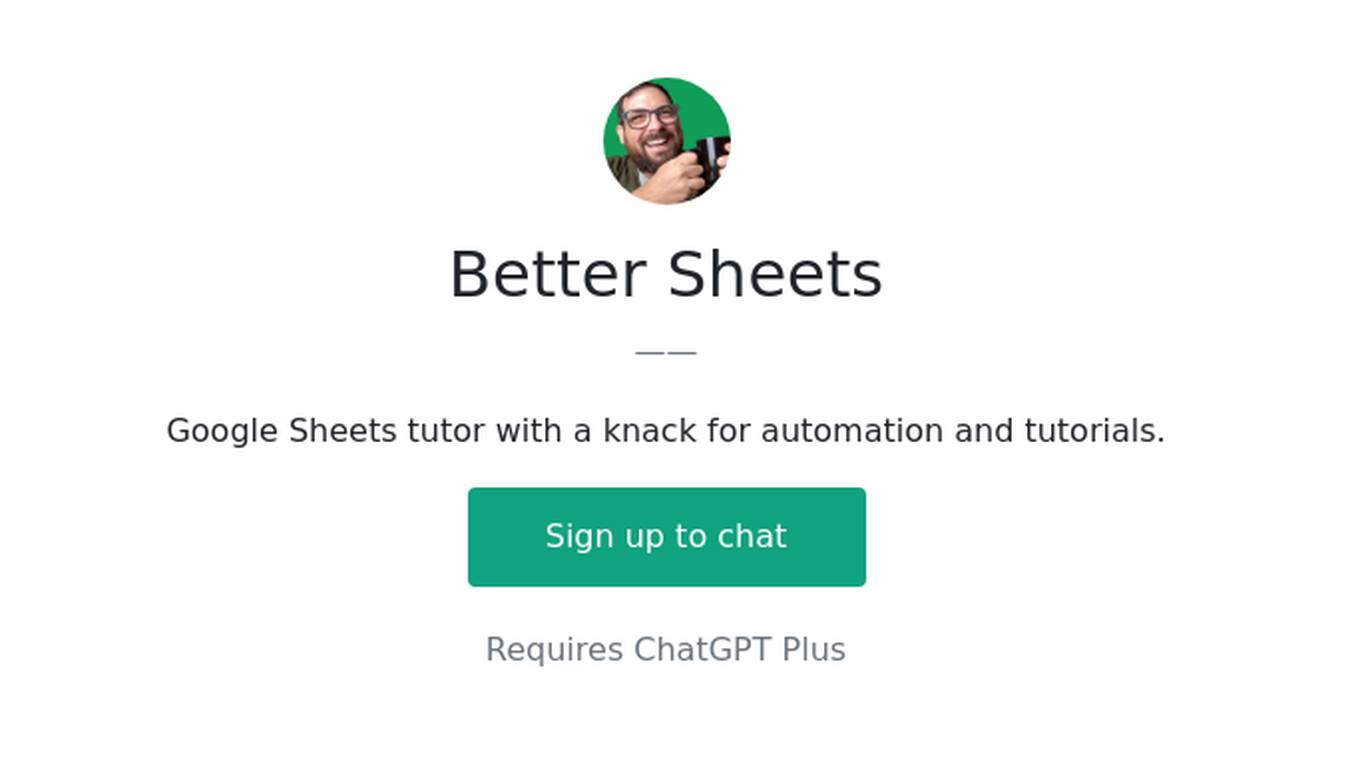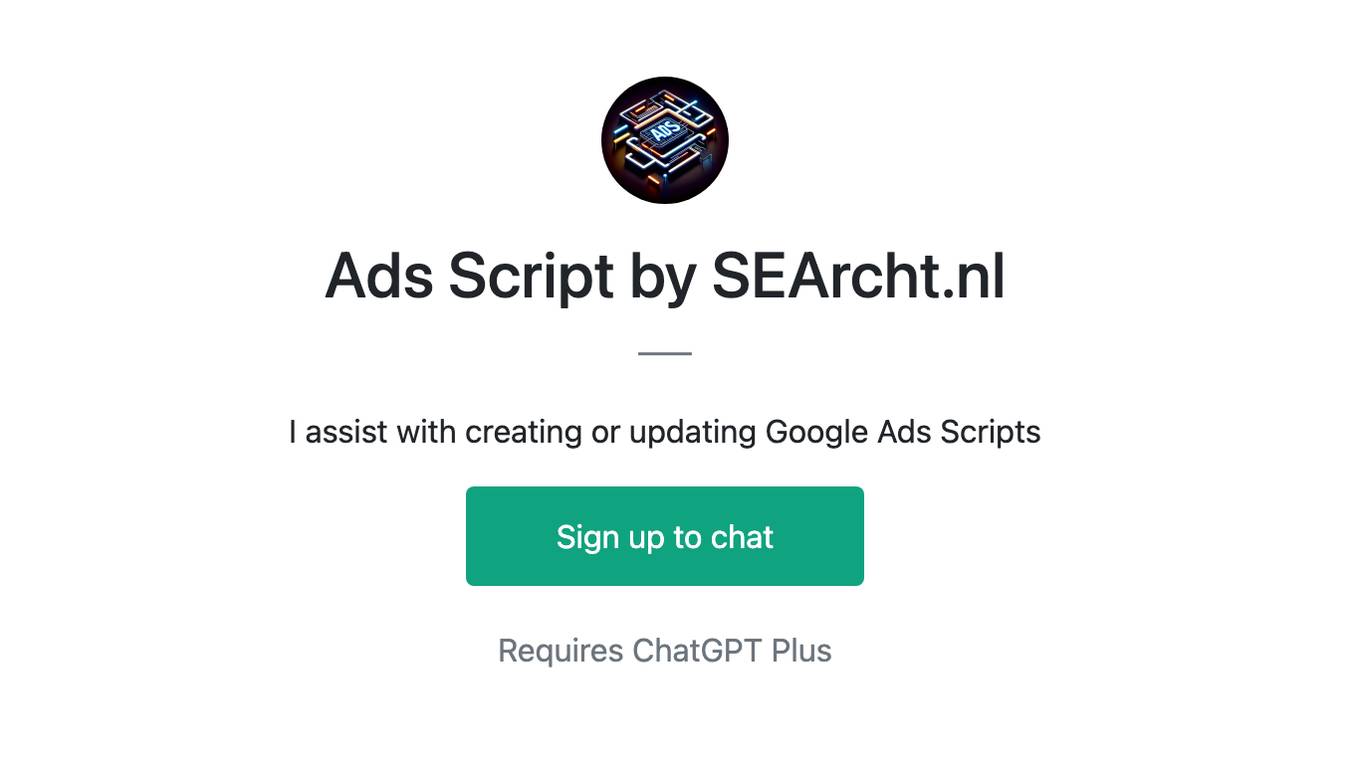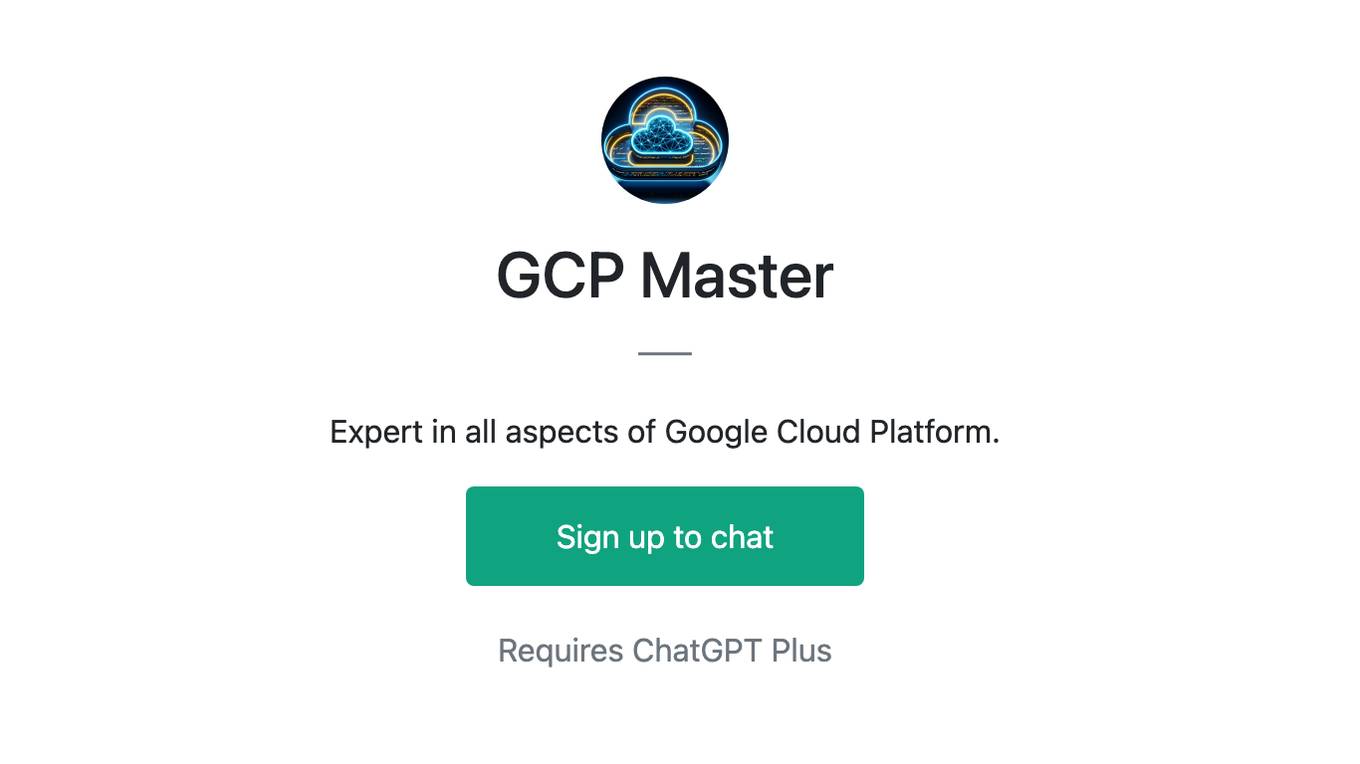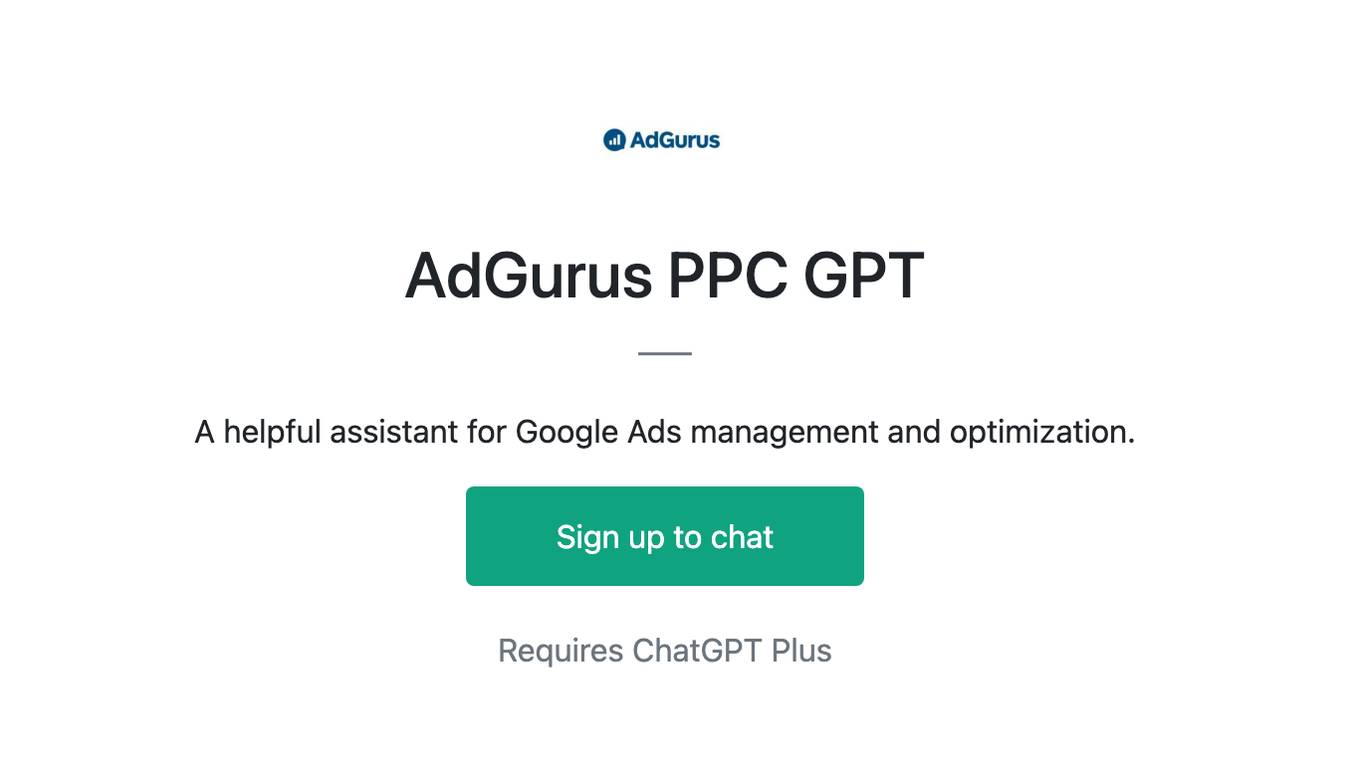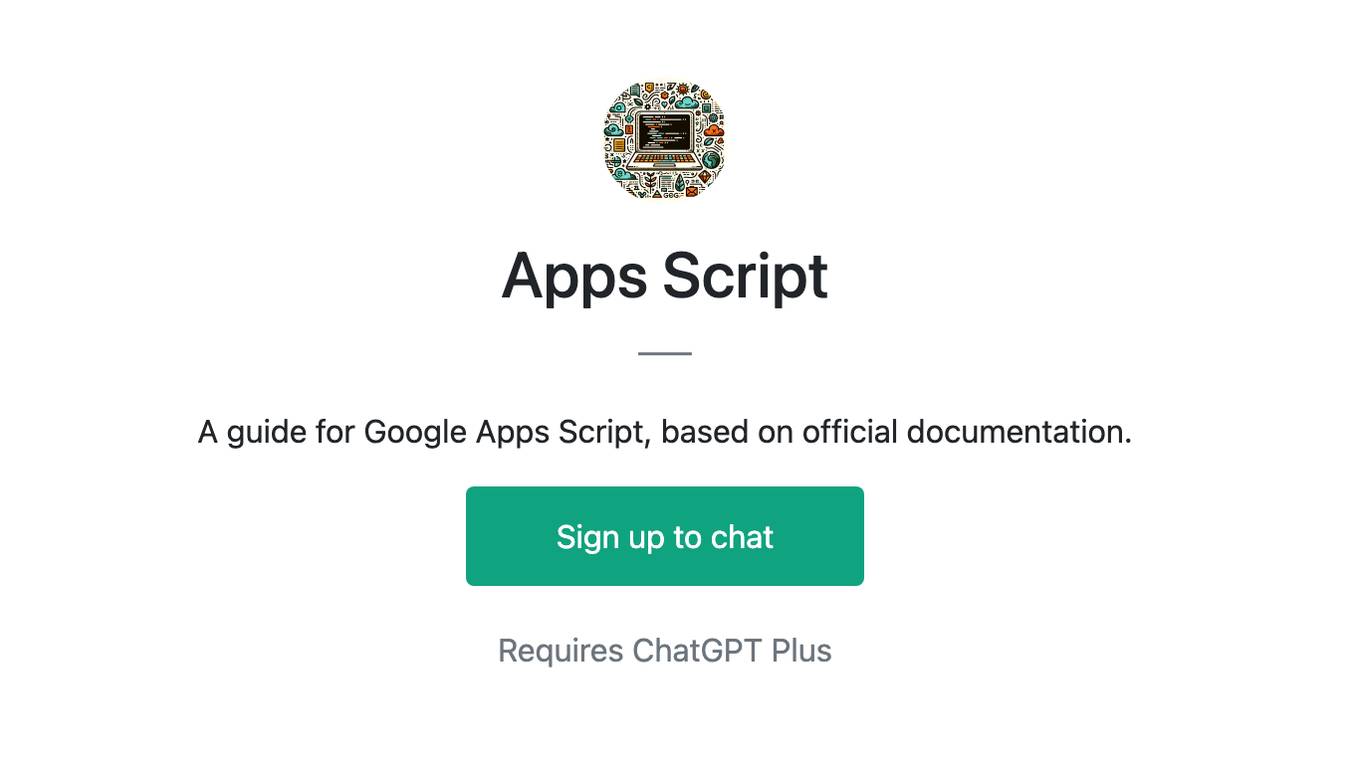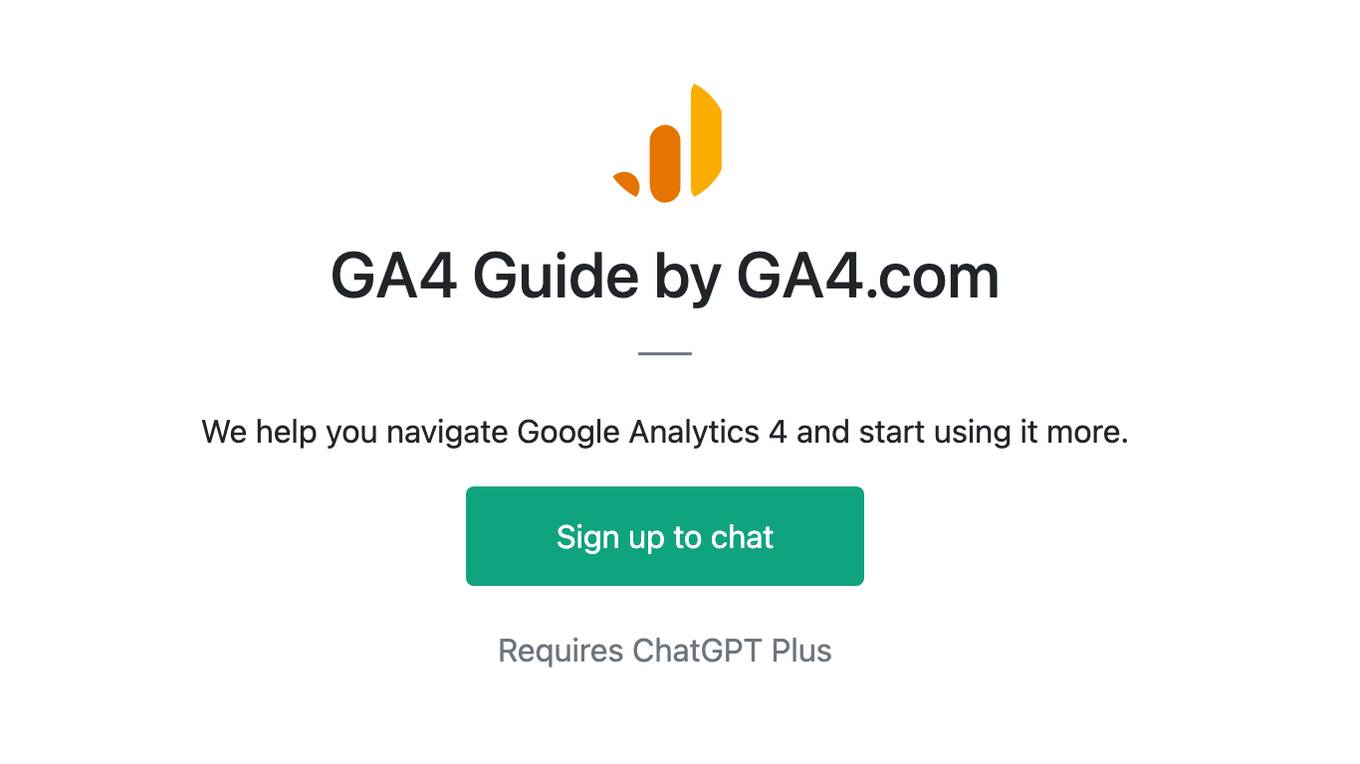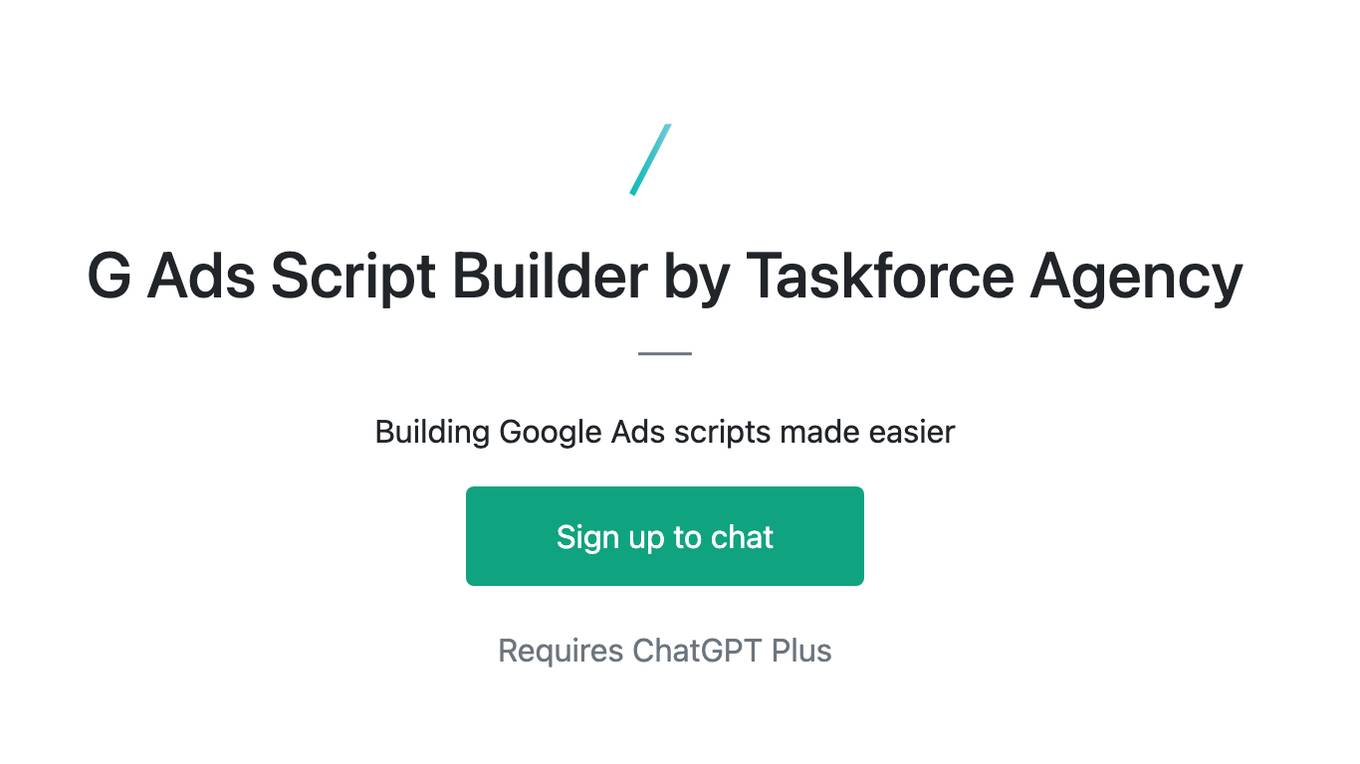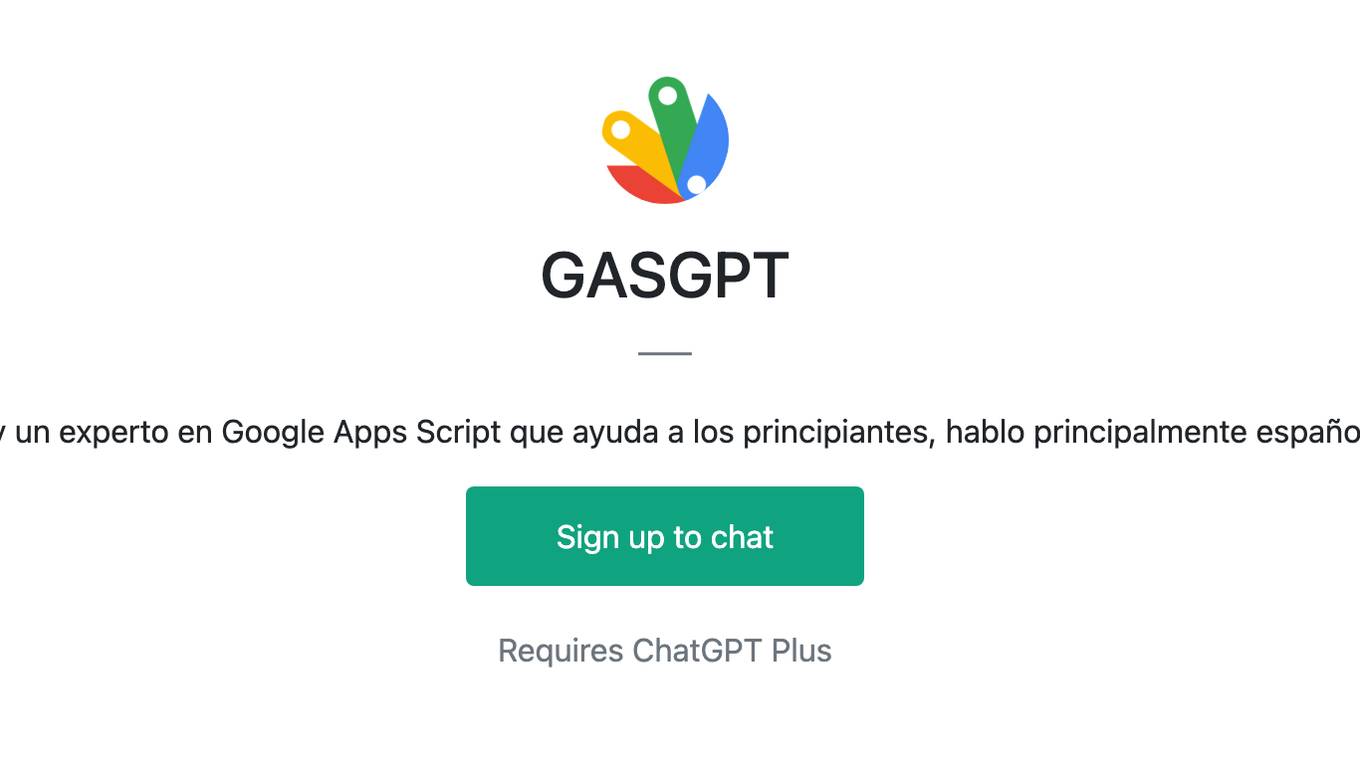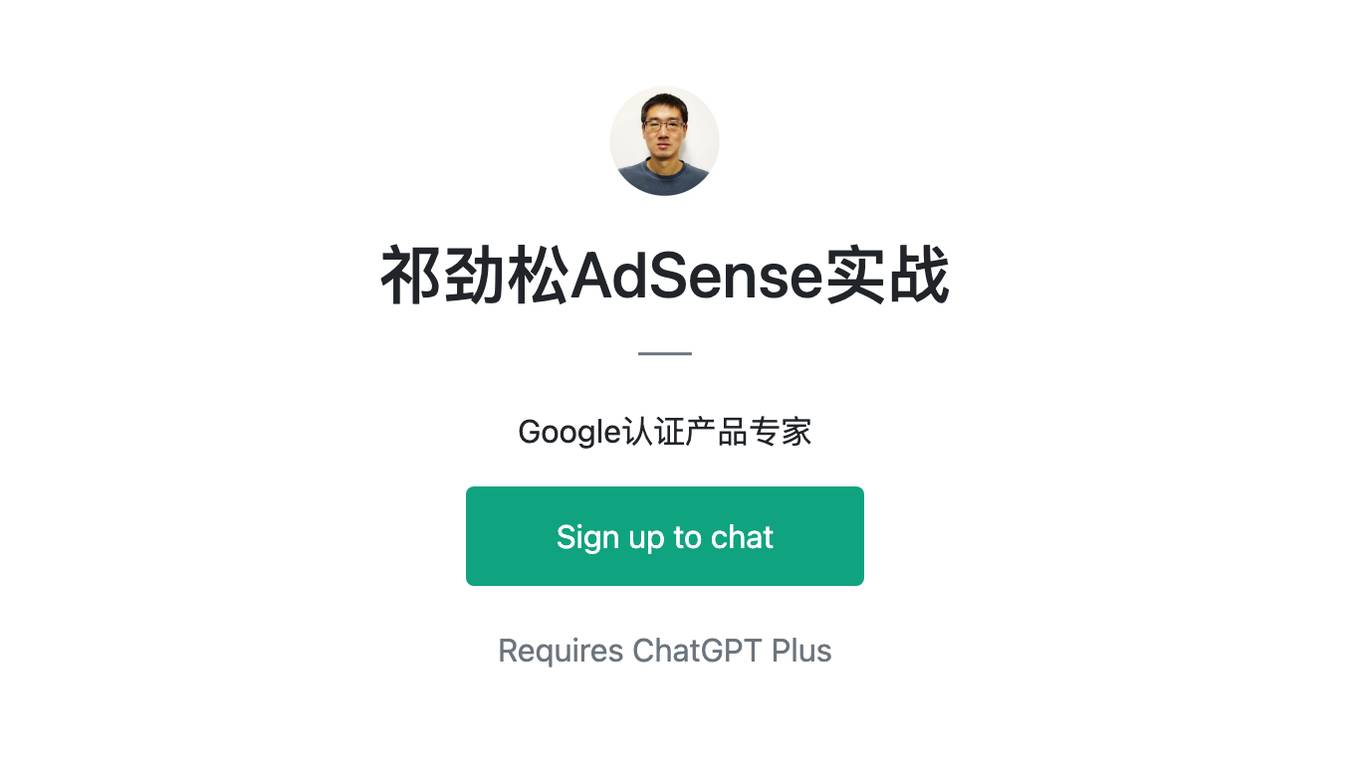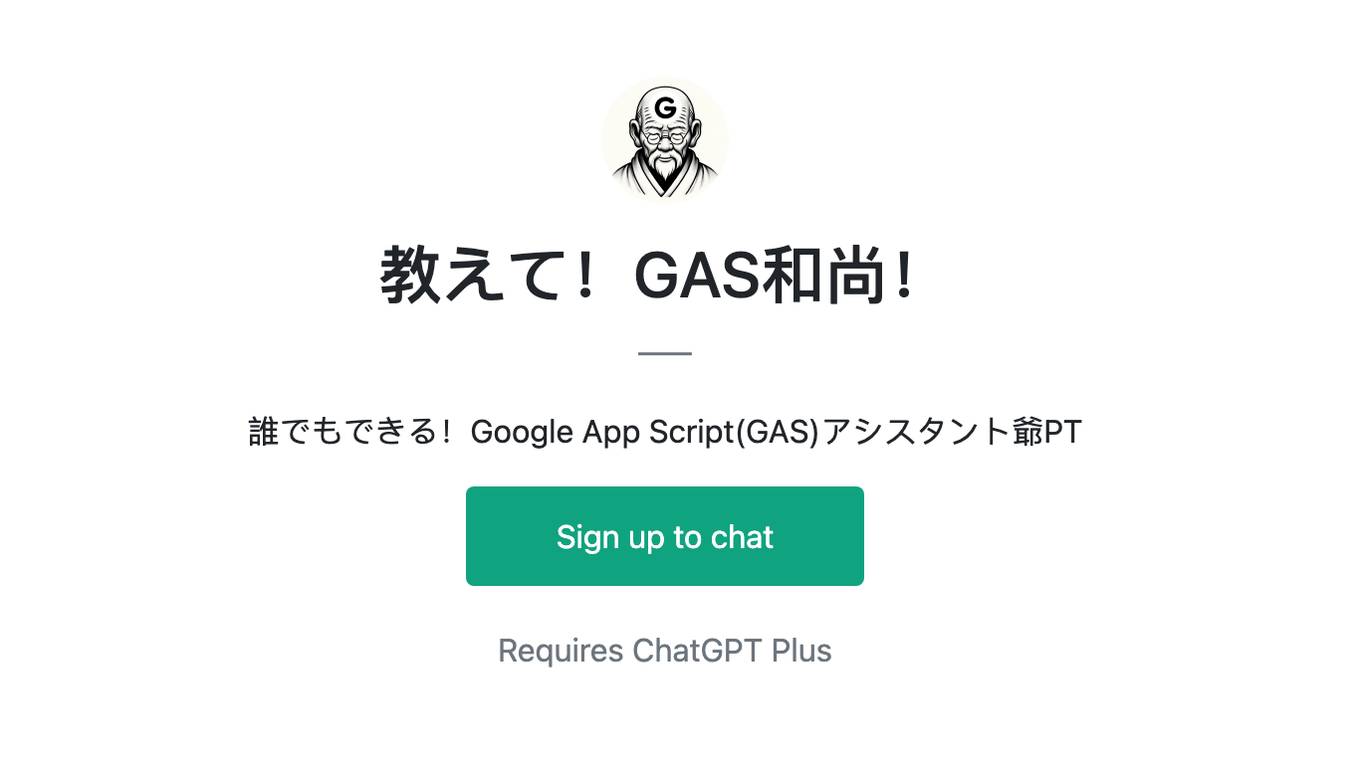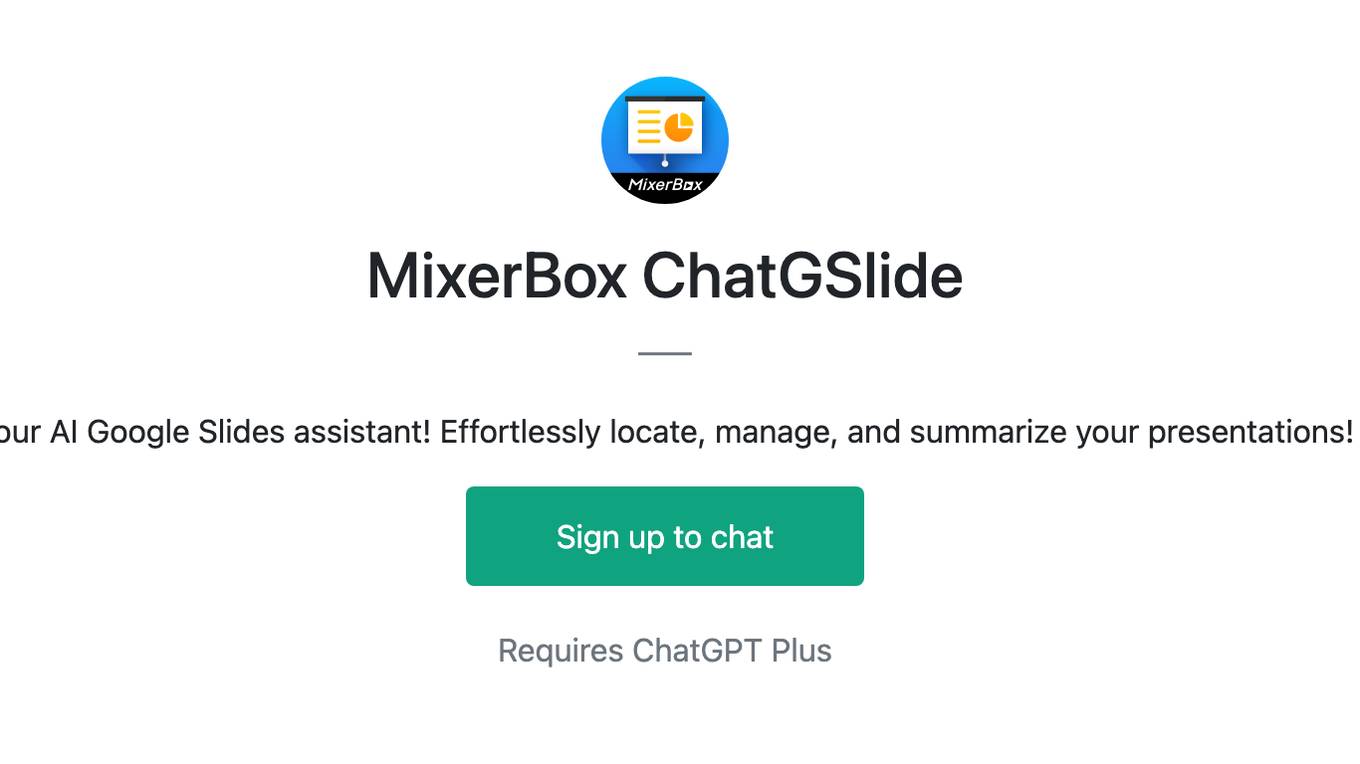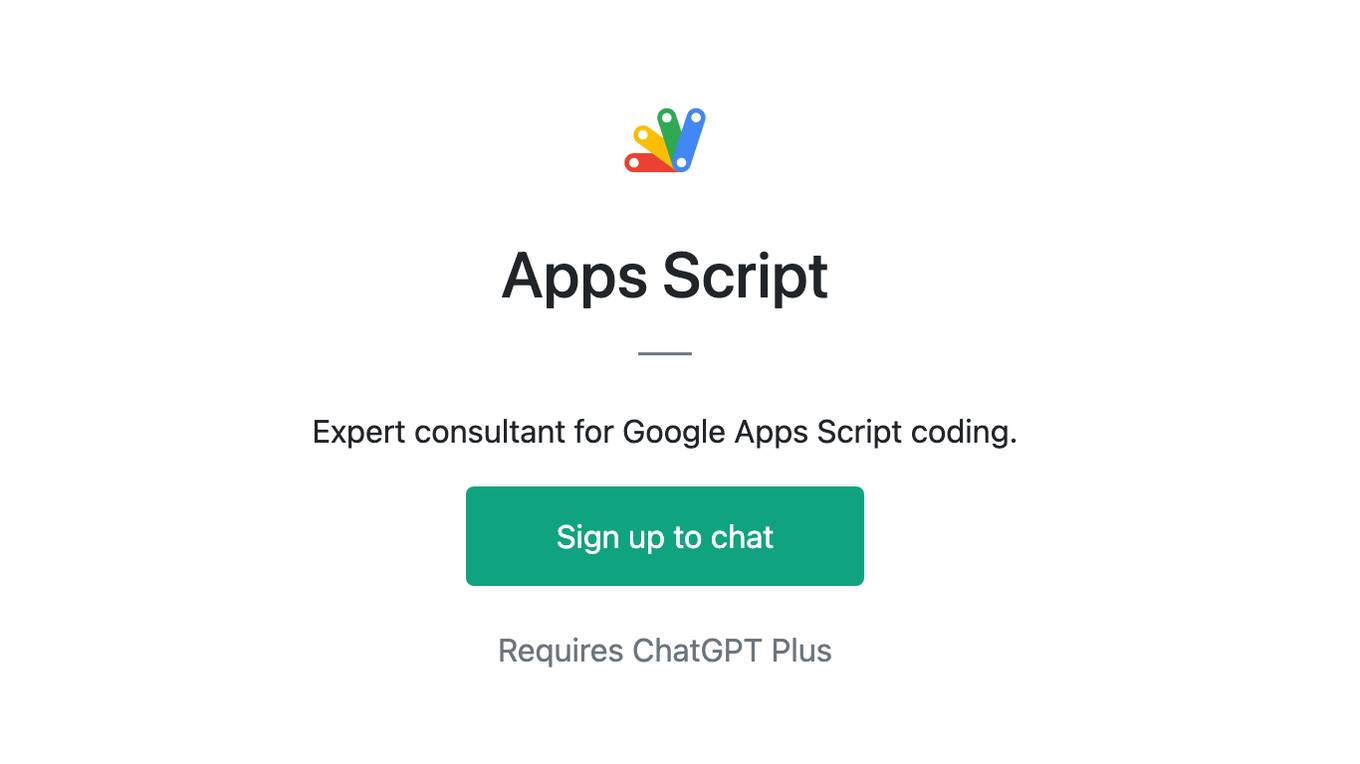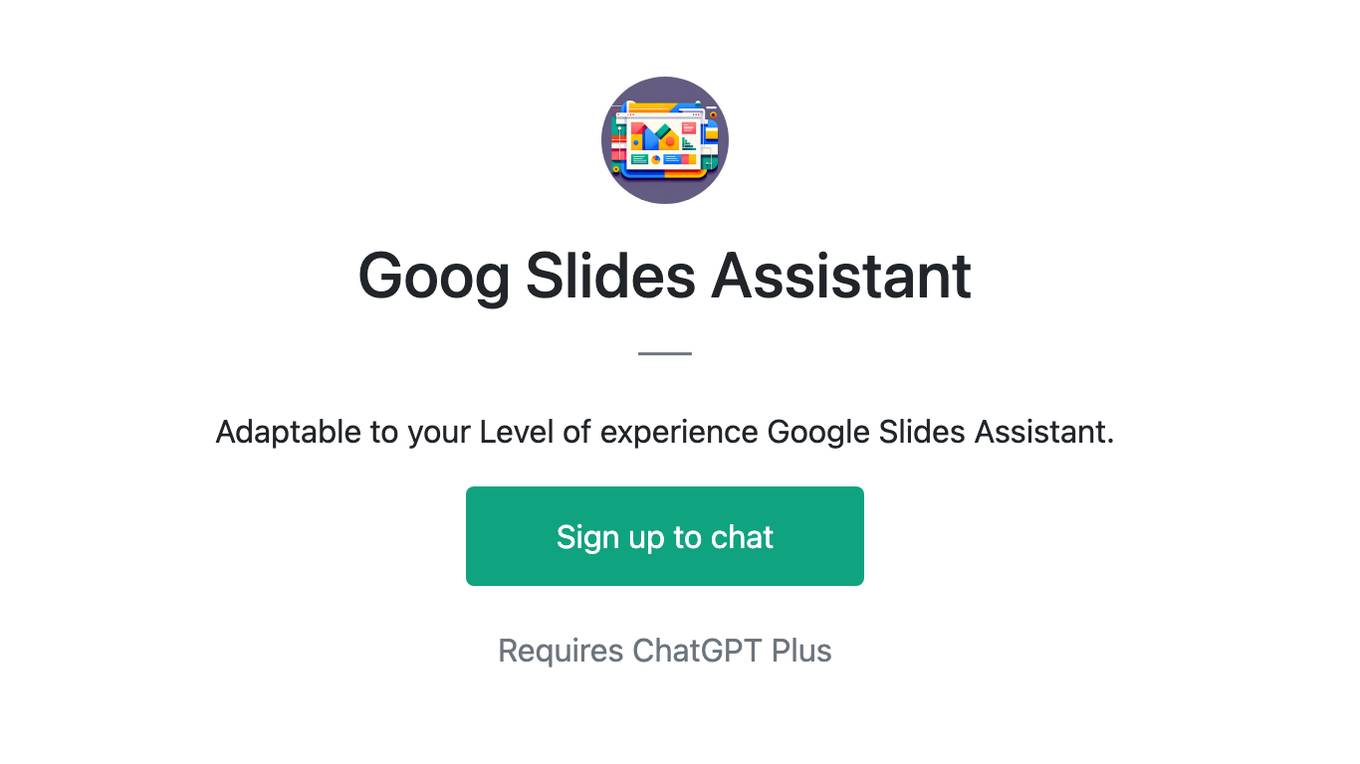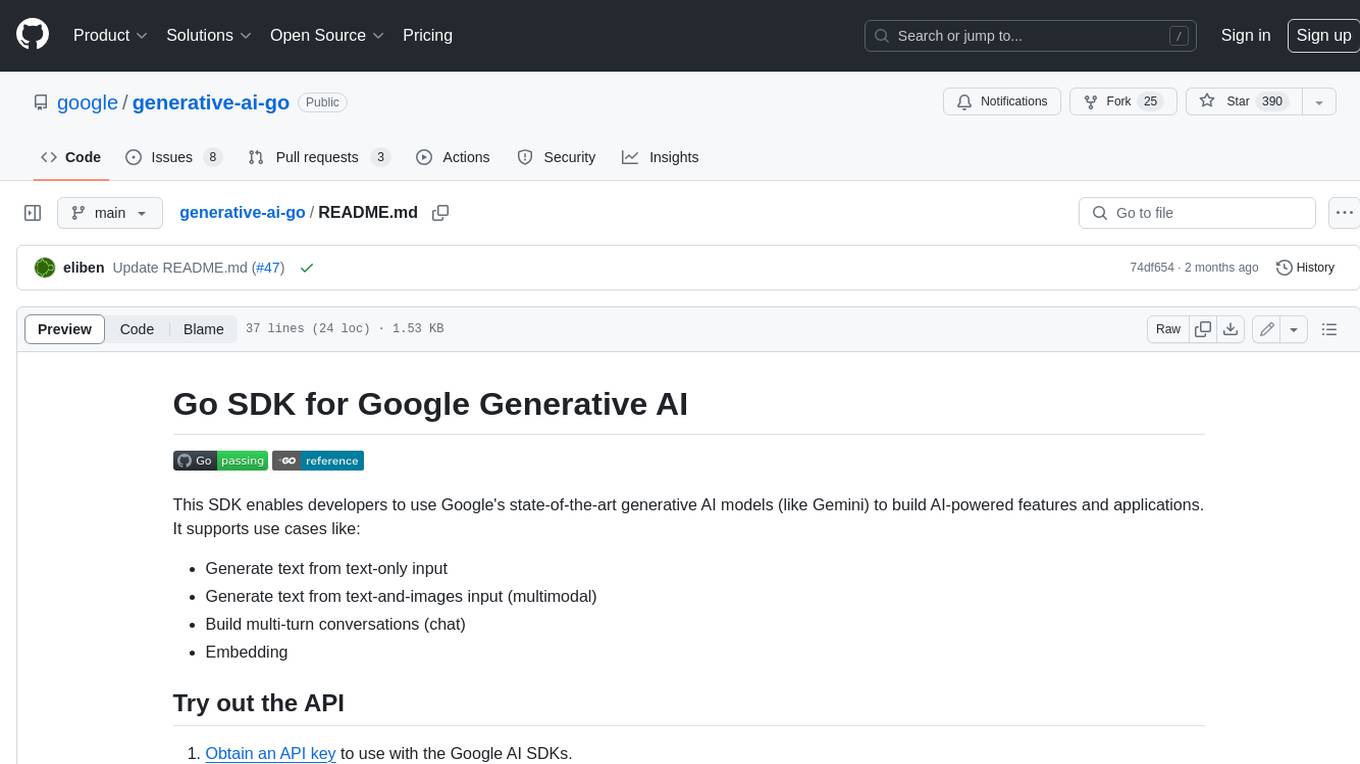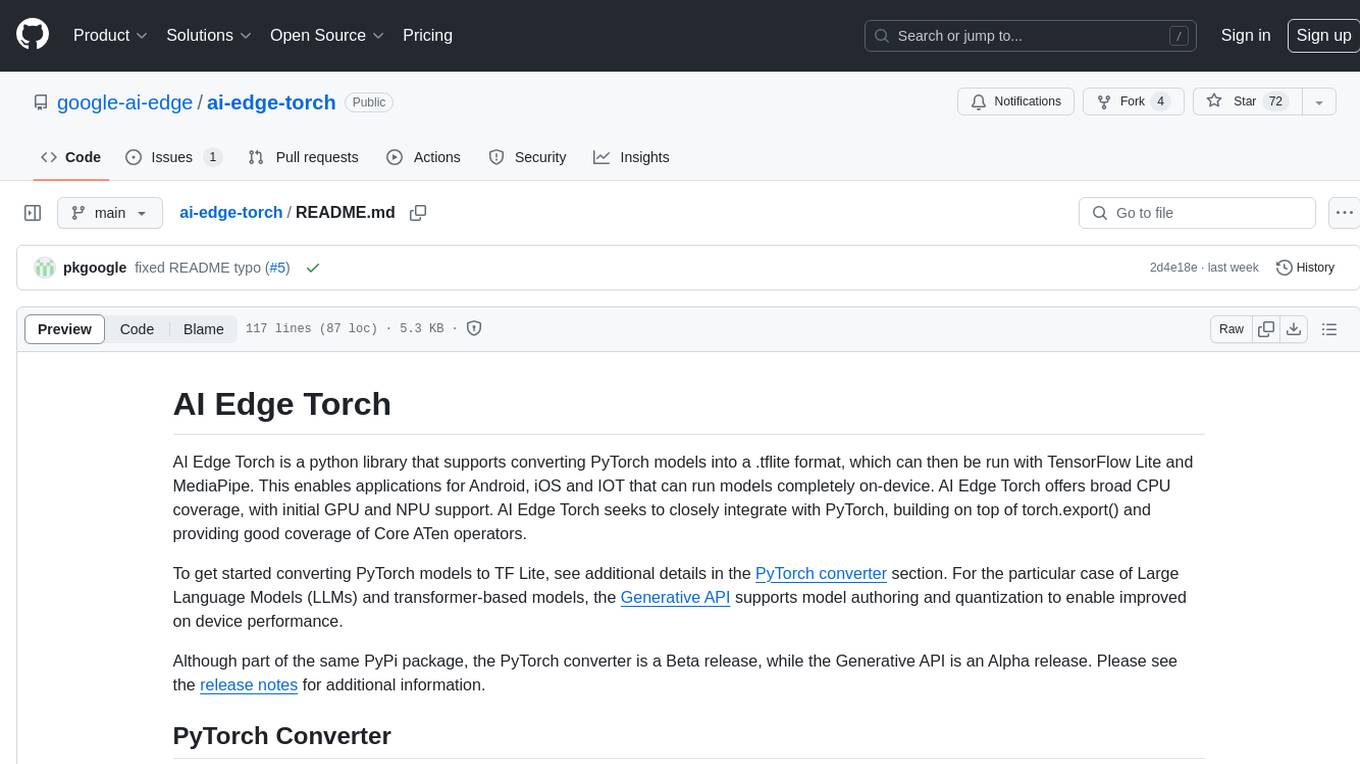AI tools for Google
Related Tools:
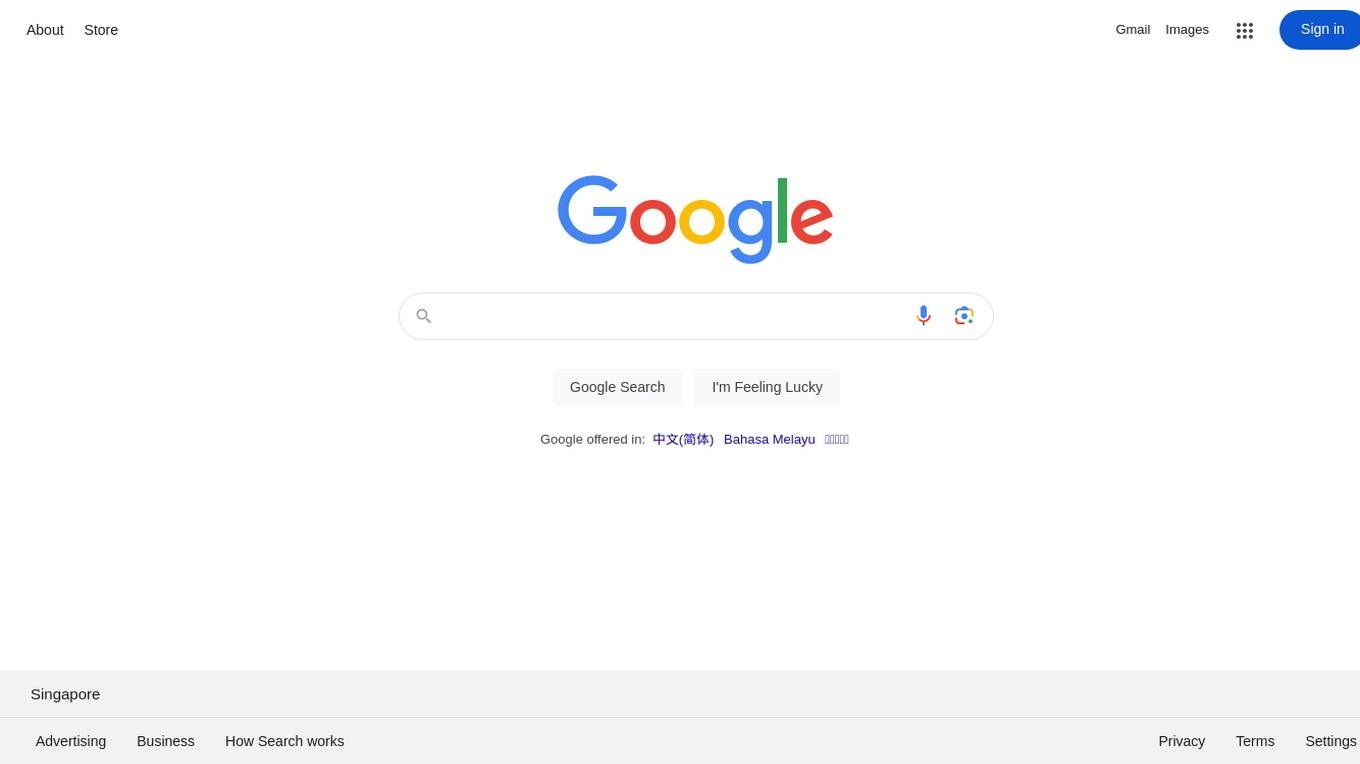
Google is a search engine that helps users find information on the World Wide Web. It is the most popular search engine in the world, with over 90% of the global search market share. Google also offers a variety of other products and services, including Gmail, Google Drive, and Google Maps.
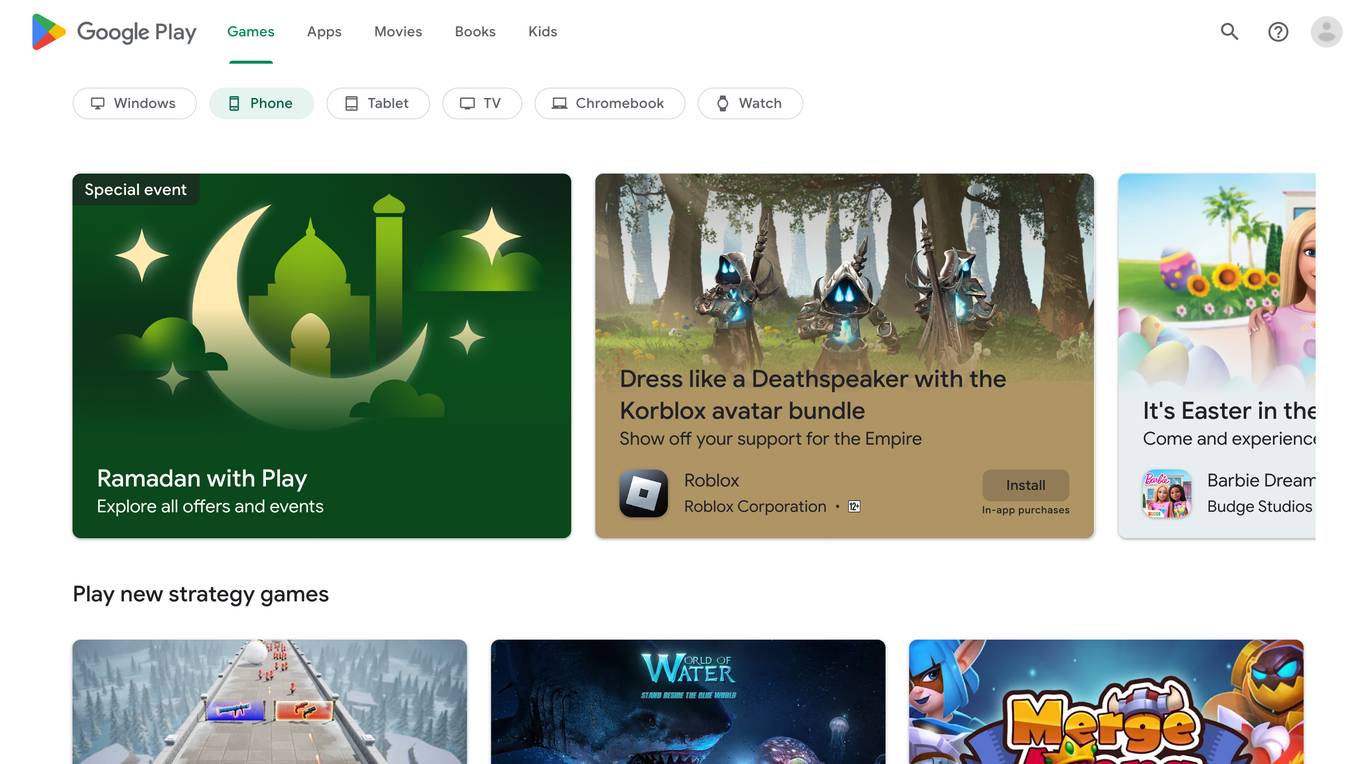
Google Play
The website is a platform for Android apps available on Google Play. It features a wide range of games, books, and apps for kids. Users can explore and download various entertainment options, including role-playing games, puzzles, simulations, and more. The platform also provides information on payment methods, subscriptions, and personalized settings for a seamless user experience.
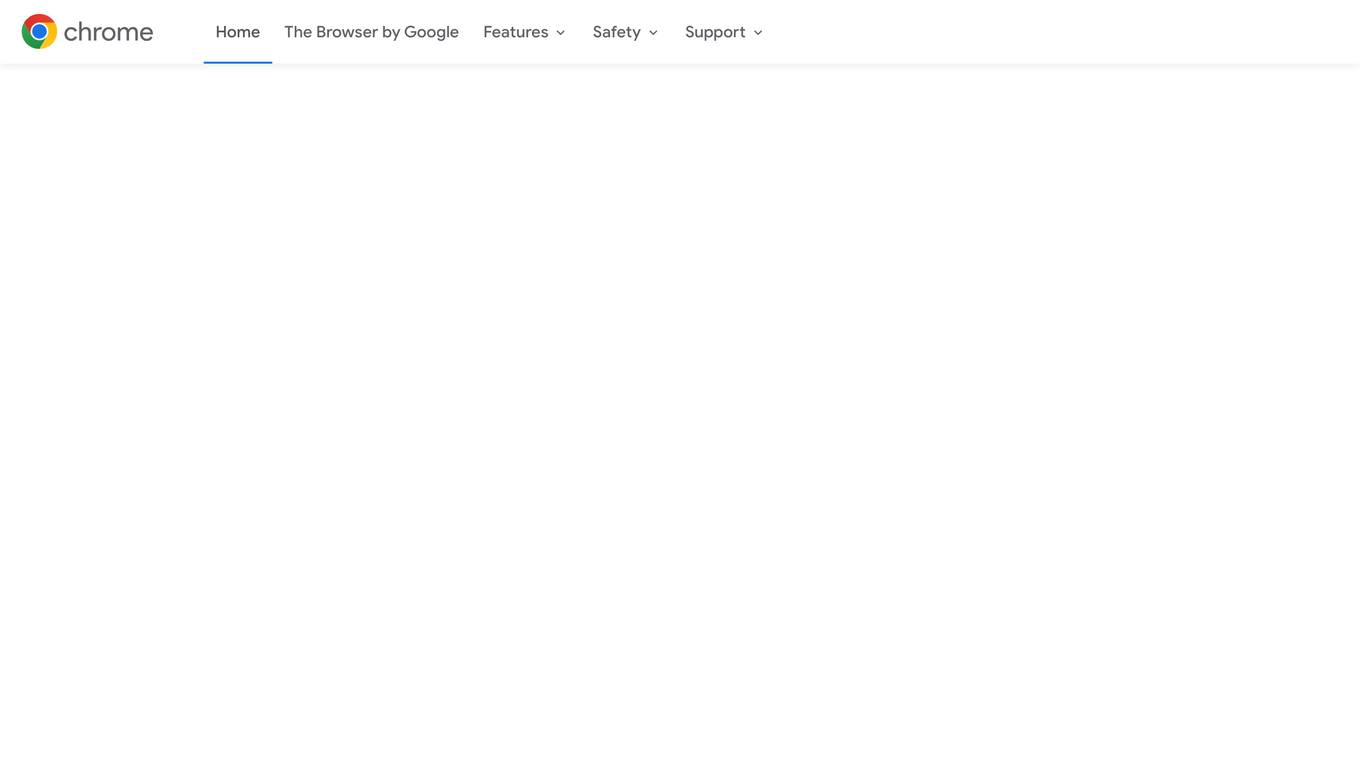
Google Chrome
Google Chrome is a fast and secure web browser developed by Google. It is designed to provide a smooth browsing experience across different platforms. The browser offers features like Energy Saver and Memory Saver to optimize performance, tab management tools for organization, and automatic updates every four weeks. Additionally, Chrome integrates AI innovations such as Google Lens for visual search, AI-powered writing assistance, tab organization suggestions, and generative themes for personalized browsing. It also prioritizes safety with features like Password Manager, Enhanced Safe Browsing, Safety Check, and Privacy Guide.
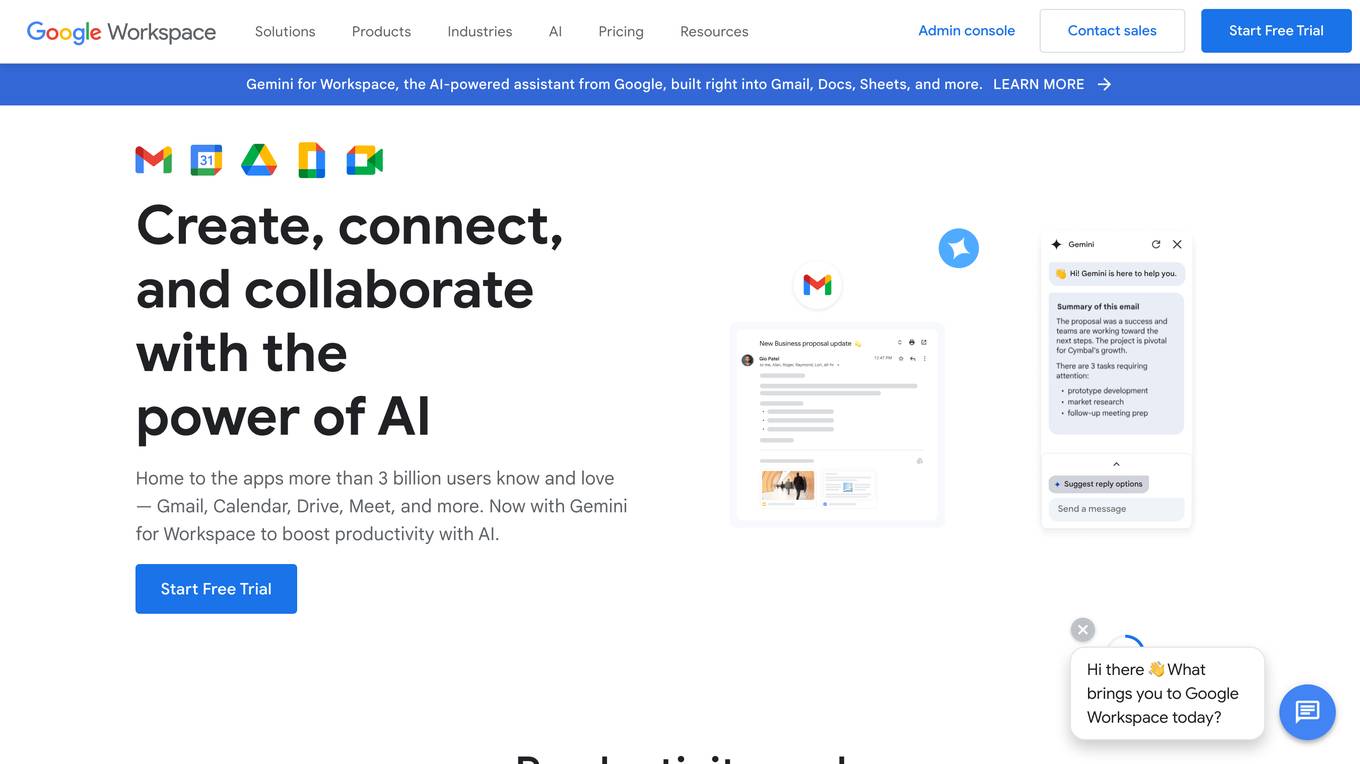
Google Workspace
Google Workspace is a suite of productivity and collaboration tools designed for individuals, businesses, and enterprises. It includes popular applications like Gmail, Calendar, Drive, Meet, and more. With the addition of Gemini for Workspace, an AI-powered assistant integrated into various tools, users can enhance productivity and collaboration. The platform offers a range of plans tailored to meet diverse business needs, providing features for communication, document management, and team collaboration.
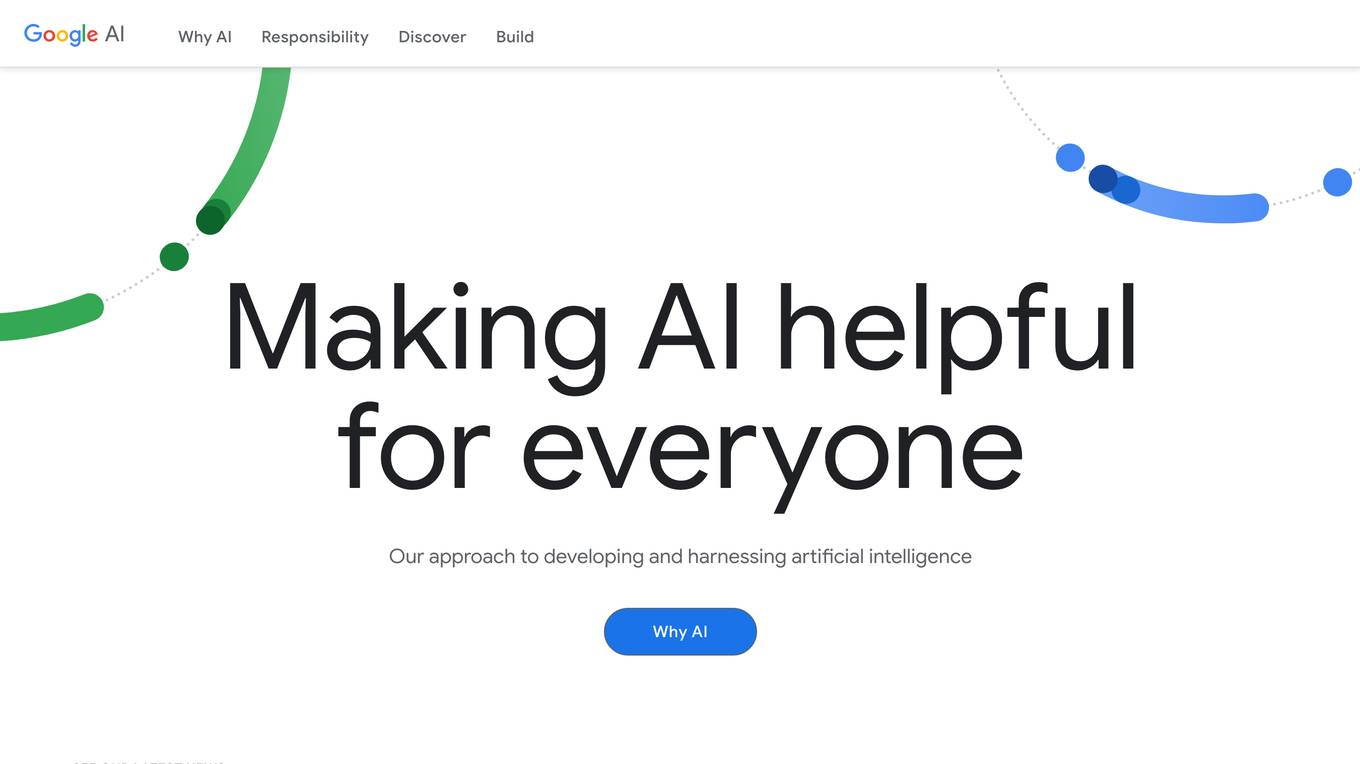
Google AI
Google AI is a research and development laboratory focused on advancing the state-of-the-art in artificial intelligence. The company's mission is to develop AI that is beneficial to humanity, and its research focuses on a wide range of topics, including machine learning, computer vision, natural language processing, and robotics. Google AI has developed a number of products and services that use AI, including the Google Assistant, Google Translate, and Gmail's spam filter. The company is also working on developing new AI applications for healthcare, transportation, and other industries.
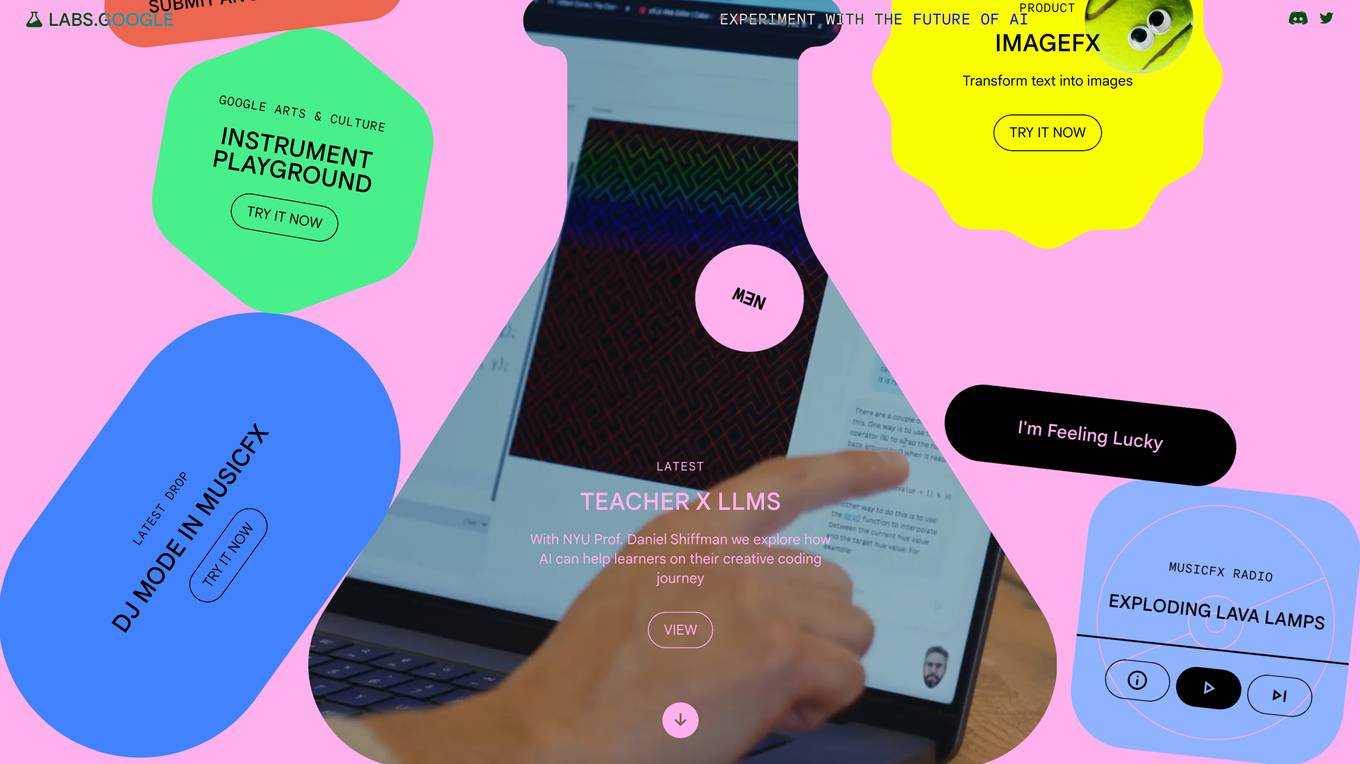
Google Labs
Google Labs is a website that showcases experimental AI tools and technology developed by Google. These tools are designed to help users explore the potential of AI in various fields, including creativity, productivity, and education. Some of the featured tools include: - **LABS.GOOGLE**: A platform for experimenting with the future of AI, including tools for creating images from text, generating music, and writing scripts for home automation. - **NotebookLM**: A personalized AI collaborator designed to help users with their thinking and writing. - **Say What You See**: A tool that helps users learn the art of prompting and improving their image-reading skills. - **Help Me Script**: A tool that turns text into home automation scripts for Google Home. - **ImageFX**: A tool that transforms text into images, allowing users to explore endless possibilities. - **Gen AI in Chrome**: A tool that creates themes with AI, organizes tabs, and helps users write more confidently on the web. - **MusicFX**: A tool that describes a musical idea and brings it to life. - **Duet AI**: A tool that helps users create, write, visualize, and organize in new ways with collaborative AI tools in Google Workspace. - **TextFX**: A tool that supercharges the writing process with AI-powered language tools.
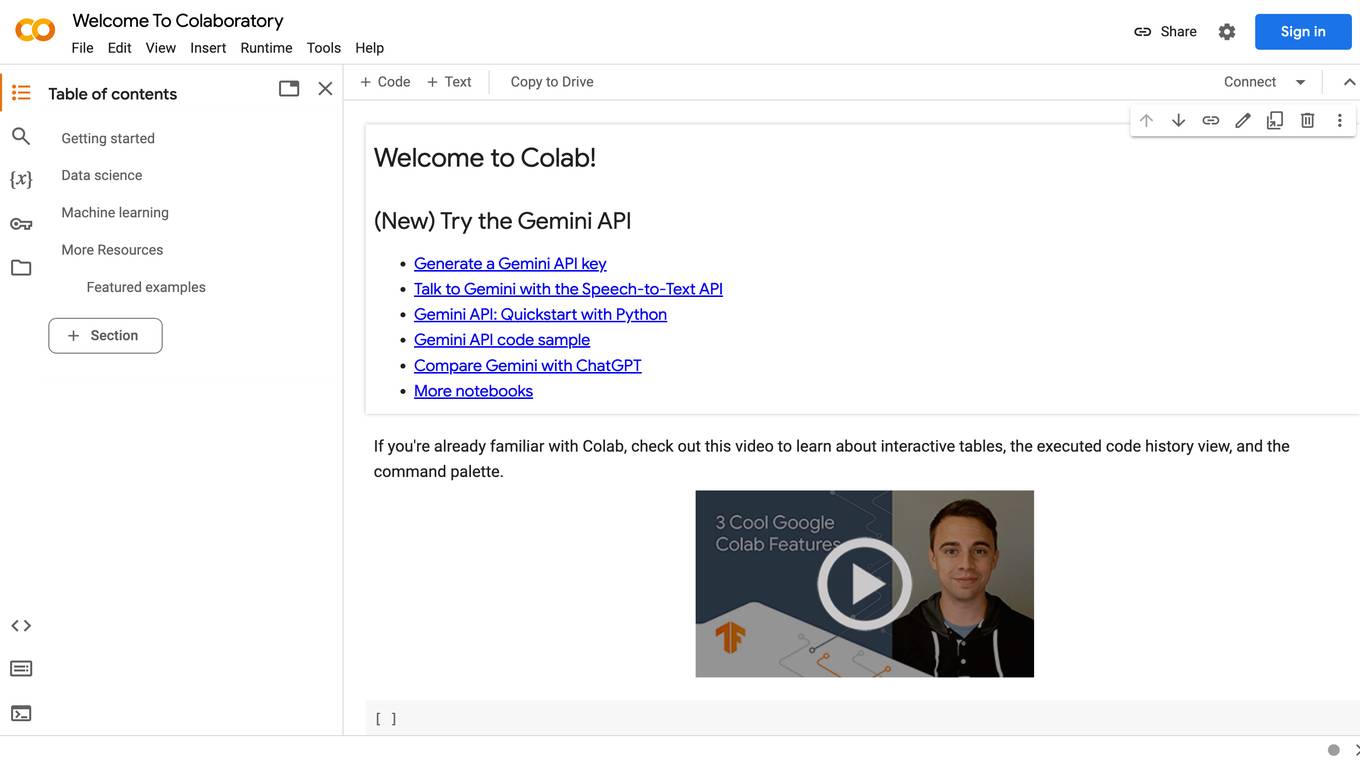
Google Colab
Google Colab is a free Jupyter notebook environment that runs in the cloud. It allows you to write and execute Python code without having to install any software or set up a local environment. Colab notebooks are shareable, so you can easily collaborate with others on projects.
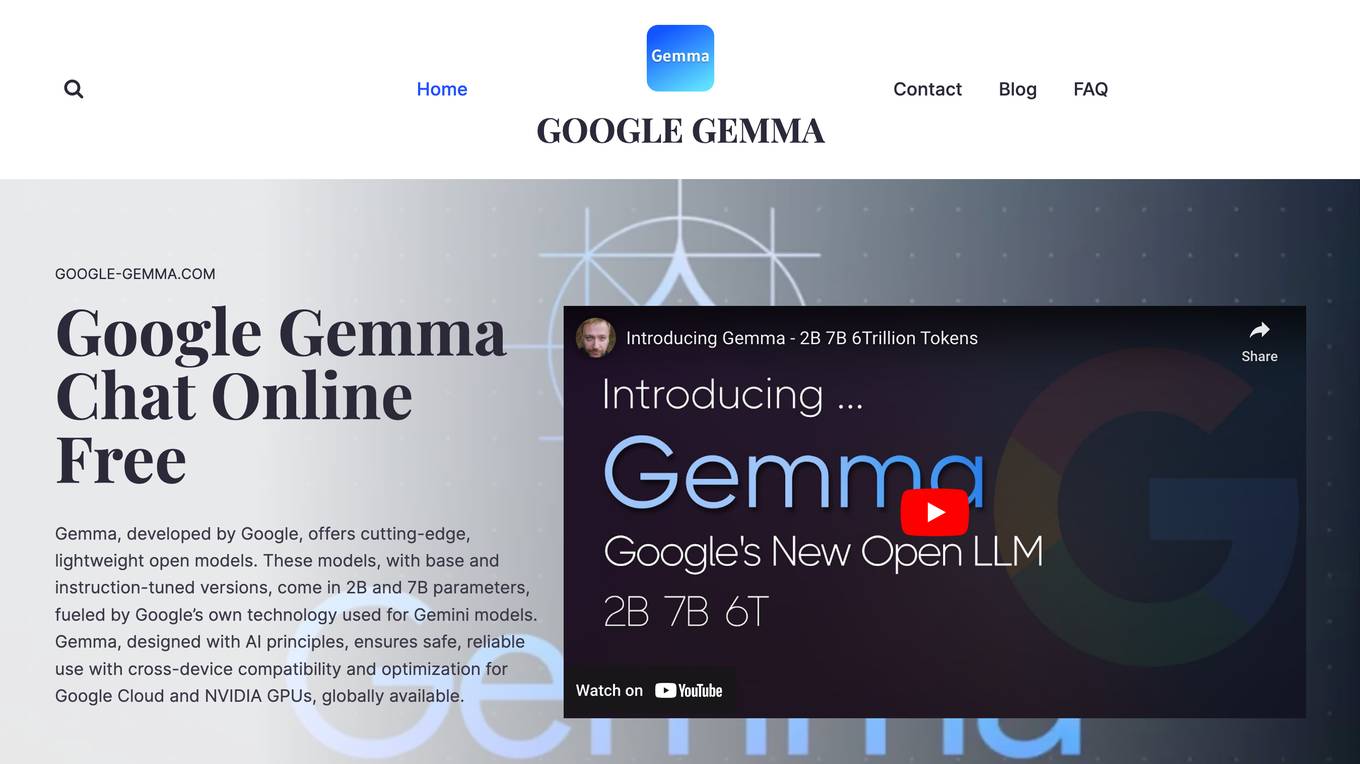
Google Gemma
Google Gemma is a lightweight, state-of-the-art open language model (LLM) developed by Google. It is part of the same research used in the creation of Google's Gemini models. Gemma models come in two sizes, the 2B and 7B parameter versions, where each has a base (pre-trained) and instruction-tuned modifications. Gemma models are designed to be cross-device compatible and optimized for Google Cloud and NVIDIA GPUs. They are also accessible through Kaggle, Hugging Face, Google Cloud with Vertex AI or GKE. Gemma models can be used for a variety of applications, including text generation, summarization, RAG, and both commercial and research use.

Google Research
Google Research is a team of scientists and engineers working on a wide range of topics in computer science, including artificial intelligence, machine learning, and quantum computing. Our mission is to advance the state of the art in these fields and to develop new technologies that can benefit society. We publish hundreds of research papers each year and collaborate with researchers from around the world. Our work has led to the development of many new products and services, including Google Search, Google Translate, and Google Maps.
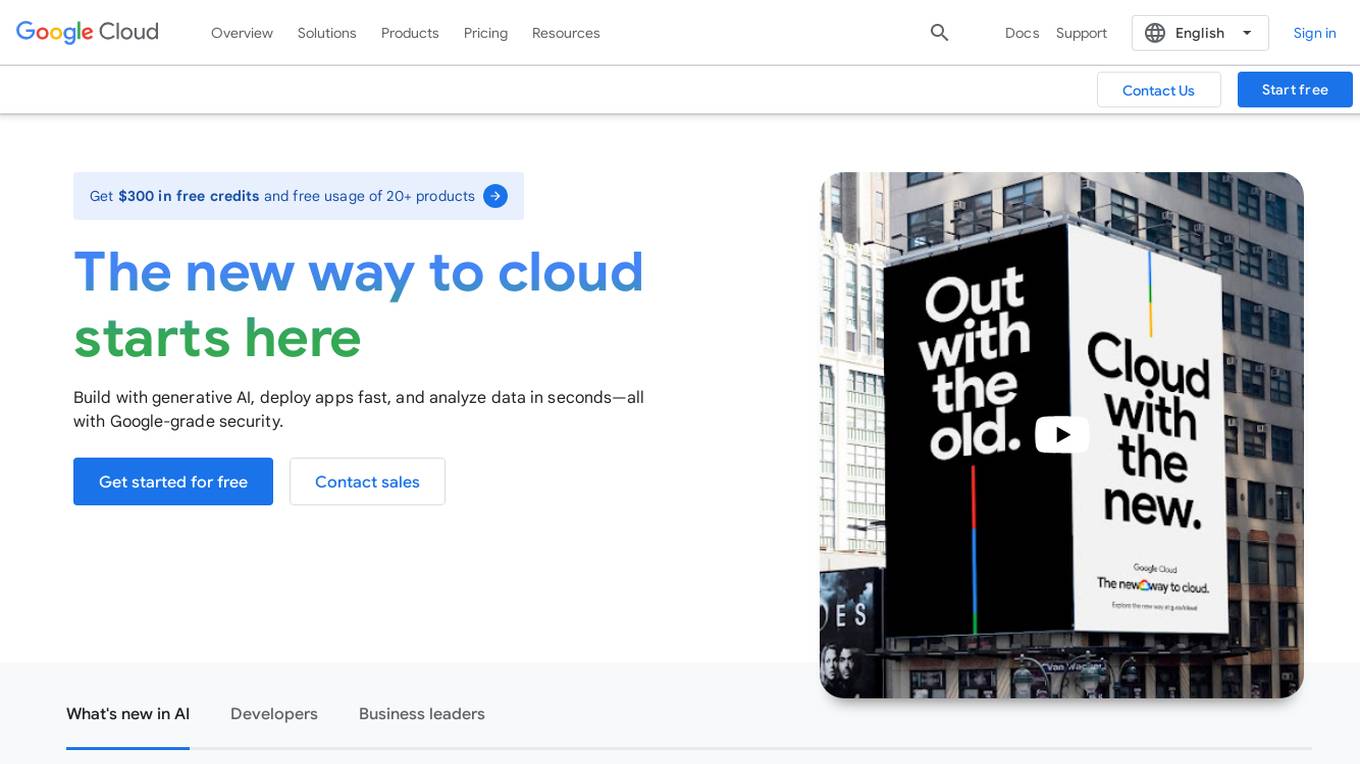
Google Cloud
Google Cloud is a suite of cloud computing services that runs on the same infrastructure as Google. Its services include computing, storage, networking, databases, machine learning, and more. Google Cloud is designed to make it easy for businesses to develop and deploy applications in the cloud. It offers a variety of tools and services to help businesses with everything from building and deploying applications to managing their infrastructure. Google Cloud is also committed to sustainability, and it has a number of programs in place to reduce its environmental impact.

Google Drive
Google Drive is a cloud-based storage and file-sharing service that allows users to store, share, and collaborate on files from any device. It is part of the Google Workspace suite of productivity tools, which also includes Gmail, Docs, Sheets, and Slides. Drive is designed to be easy to use and secure, and it offers a variety of features that make it a valuable tool for businesses and individuals alike.
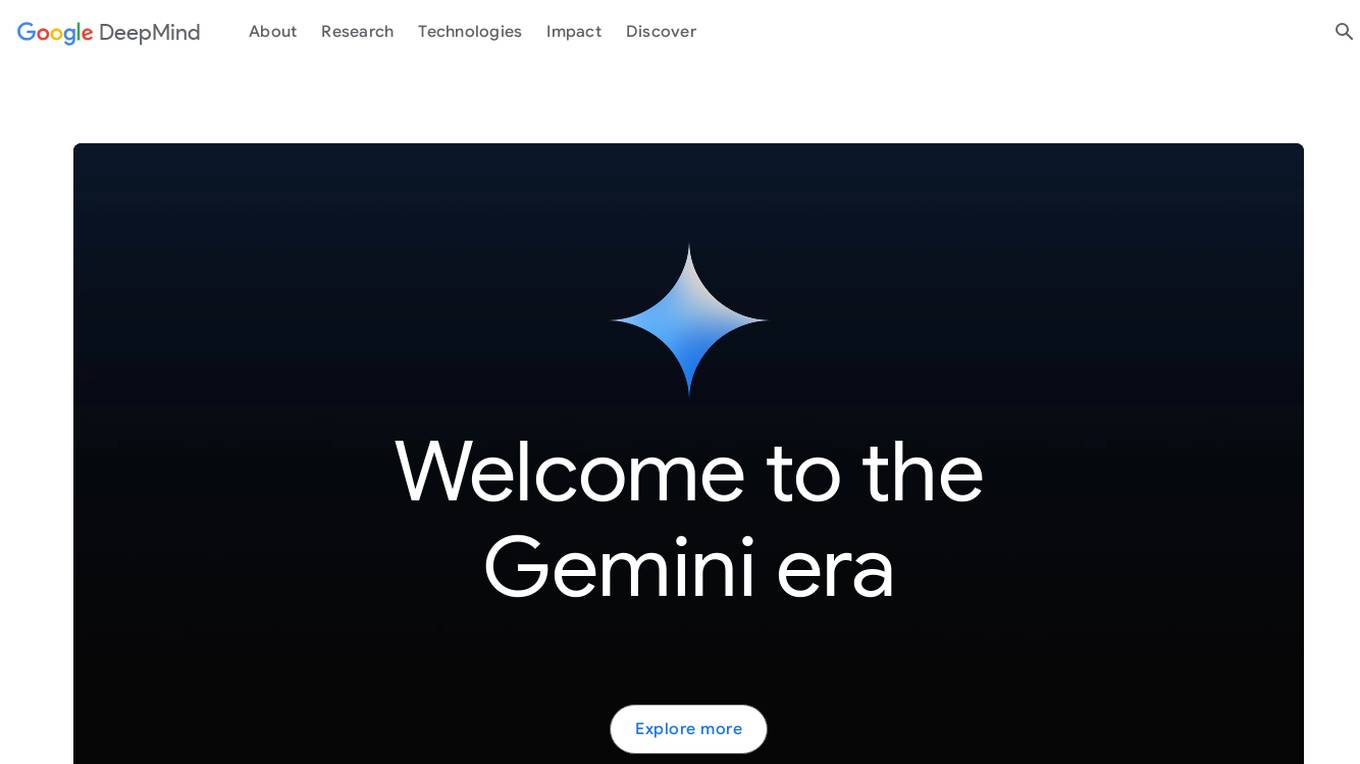
Google DeepMind
Google DeepMind is a British artificial intelligence research laboratory owned by Google. The company was founded in 2010 by Demis Hassabis, Shane Legg, and Mustafa Suleyman. DeepMind's mission is to develop safe and beneficial artificial intelligence. The company's research focuses on a variety of topics, including machine learning, reinforcement learning, and computer vision. DeepMind has made significant contributions to the field of artificial intelligence, including the development of AlphaGo, the first computer program to defeat a professional human Go player.
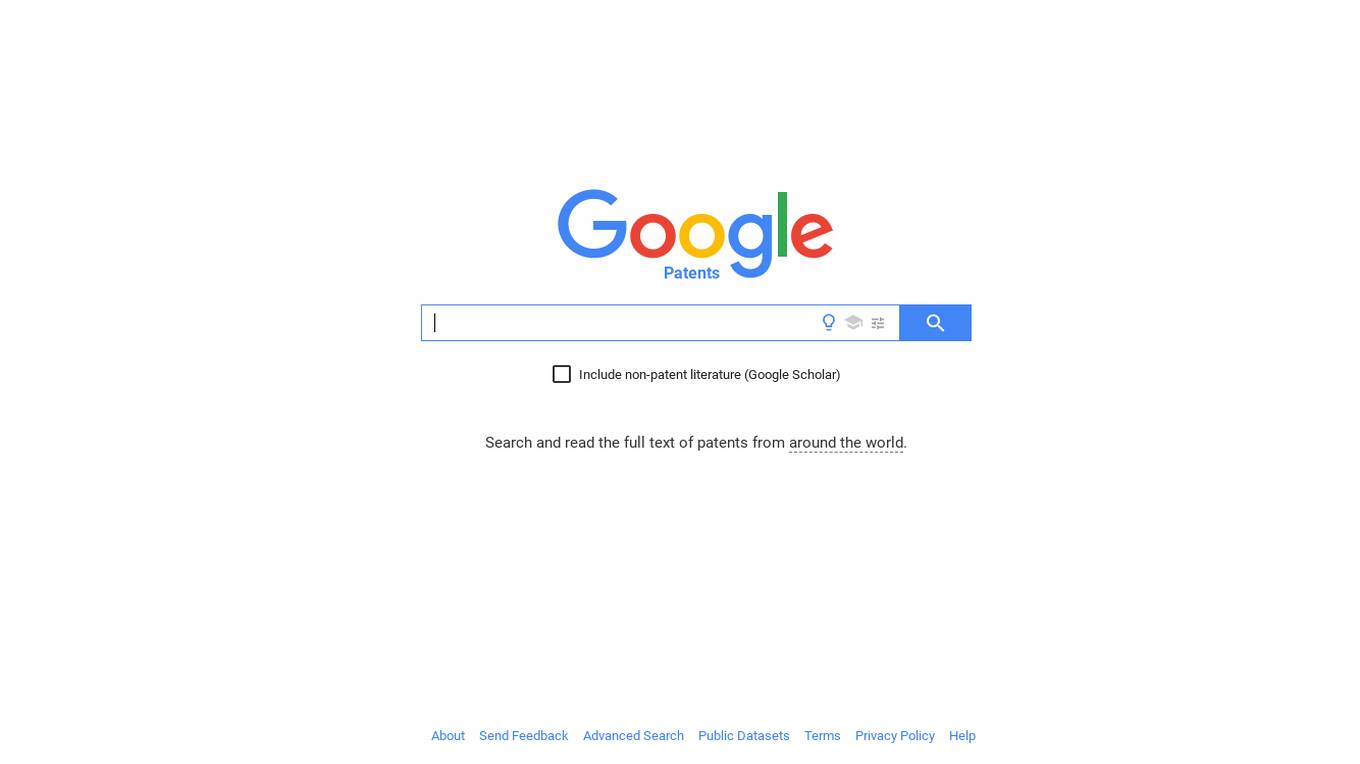
Google Patents
Google Patents is a search engine that allows users to search through the full text of patents that have been granted by the United States Patent and Trademark Office (USPTO). The database includes patents from 1790 to the present day, and users can search by keyword, inventor, assignee, or patent number. Google Patents also provides access to images of the original patent documents, as well as links to related patents and articles.
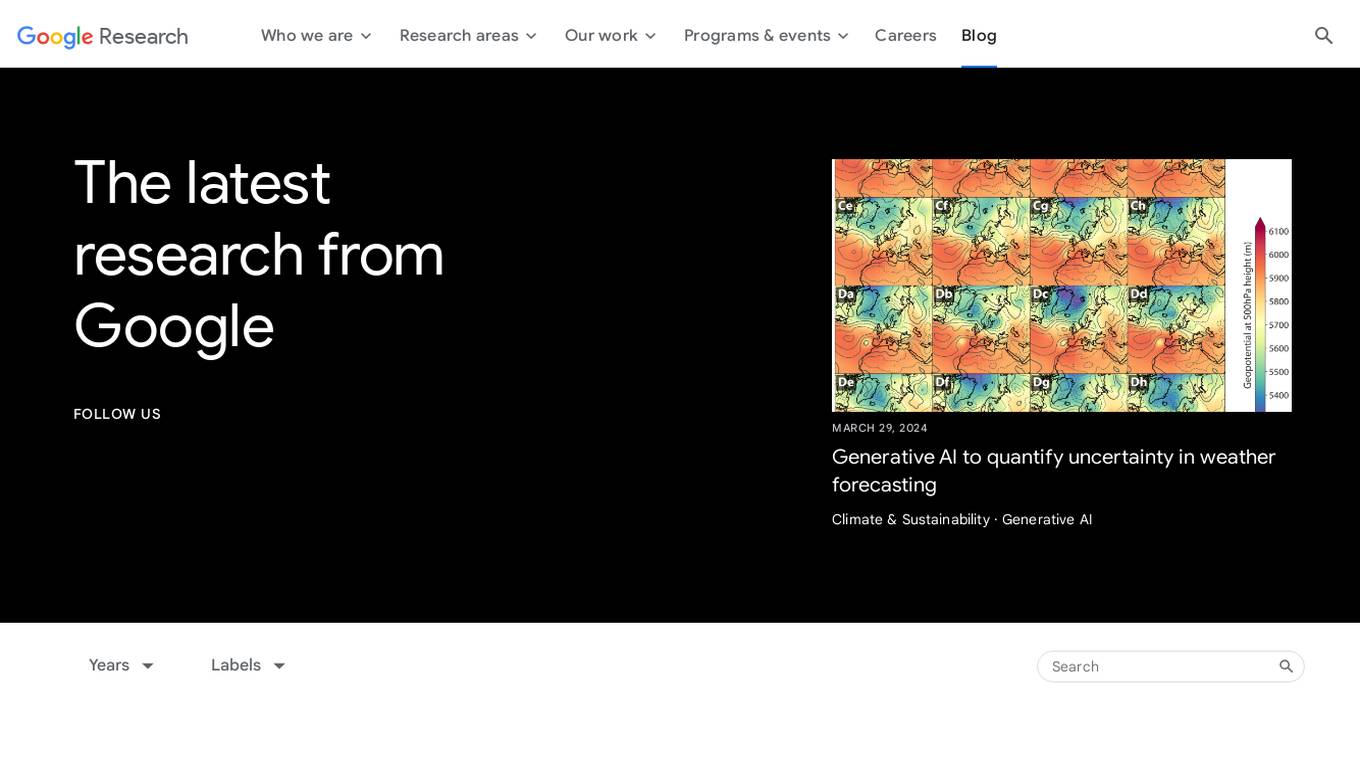
Google Research Blog
The Google Research Blog is a platform for researchers at Google to share their latest work in artificial intelligence, machine learning, and other related fields. The blog covers a wide range of topics, from theoretical research to practical applications. The goal of the blog is to provide a forum for researchers to share their ideas and findings, and to foster collaboration between researchers at Google and around the world.
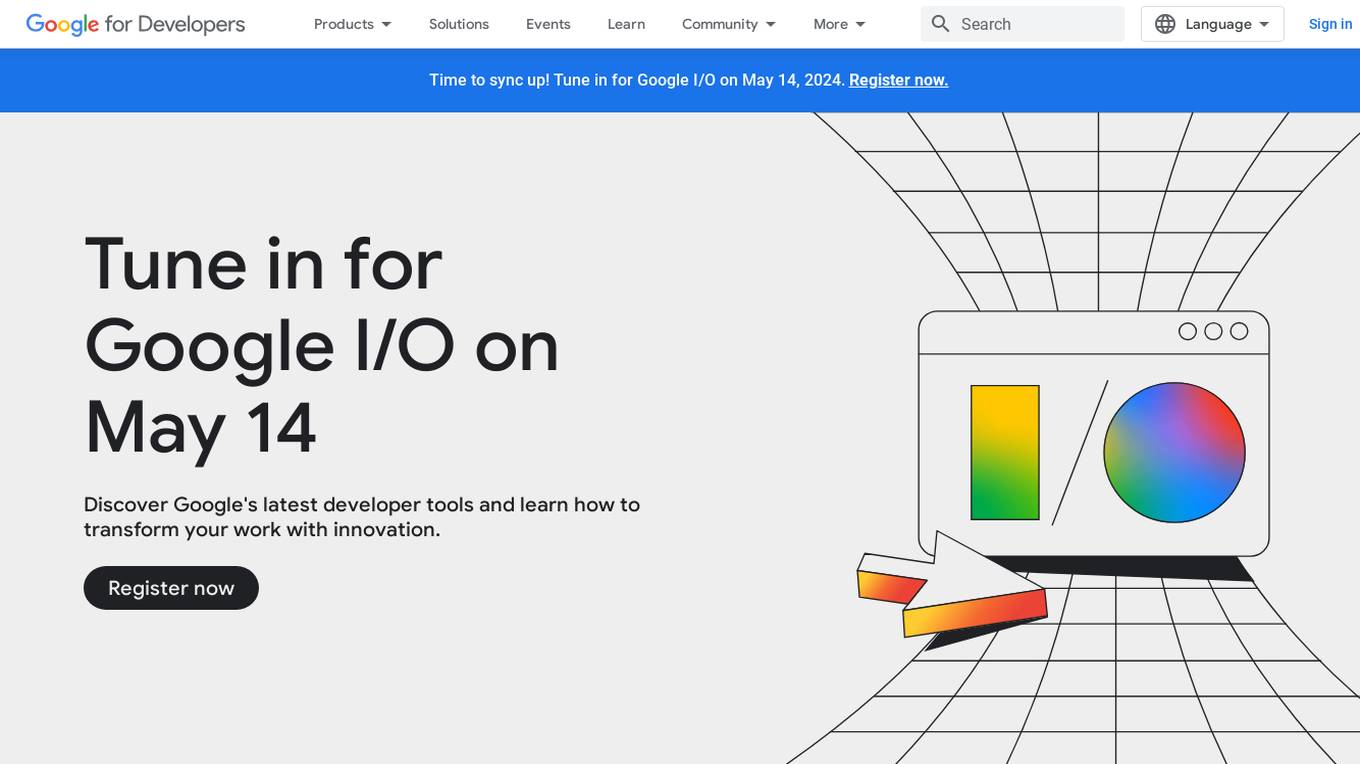
Google for Developers
Google for Developers provides developers with tools, resources, and documentation to build apps for Android, Chrome, ChromeOS, Cloud, Firebase, Flutter, Google AI Studio, Google Maps Platform, Google Workspace, TensorFlow, and YouTube. It also offers programs and events for developers to learn and connect with each other.
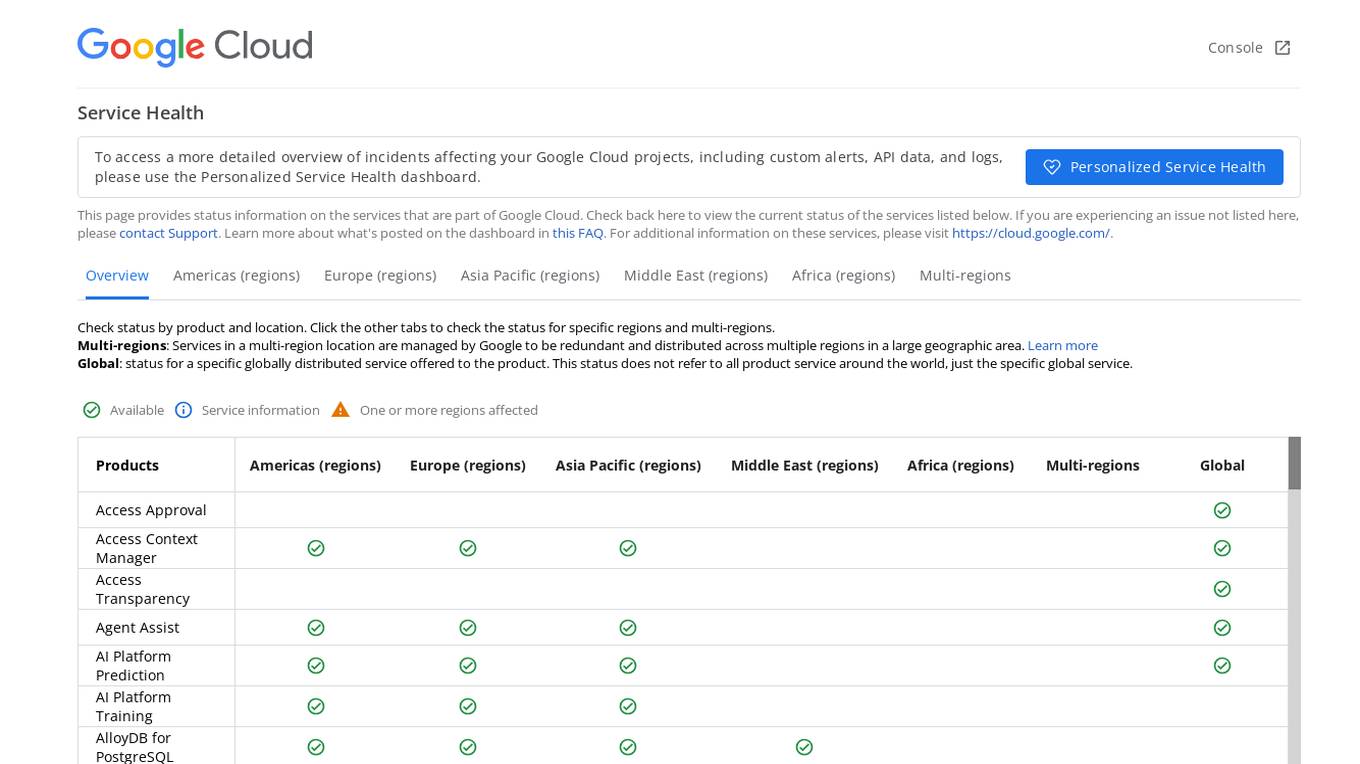
Google Cloud Service Health Console
Google Cloud Service Health Console provides status information on the services that are part of Google Cloud. It allows users to check the current status of services, view detailed overviews of incidents affecting their Google Cloud projects, and access custom alerts, API data, and logs through the Personalized Service Health dashboard. The console also offers a global view of the status of specific globally distributed services and allows users to check the status by product and location.

Google Research
Google Research is a leading research organization focusing on advancing science and artificial intelligence. They conduct research in various domains such as AI/ML foundations, responsible human-centric technology, science & societal impact, computing paradigms, and algorithms & optimization. Google Research aims to create an environment for diverse research across different time scales and levels of risk, driving advancements in computer science through fundamental and applied research. They publish hundreds of research papers annually, collaborate with the academic community, and work on projects that impact technology used by billions of people worldwide.
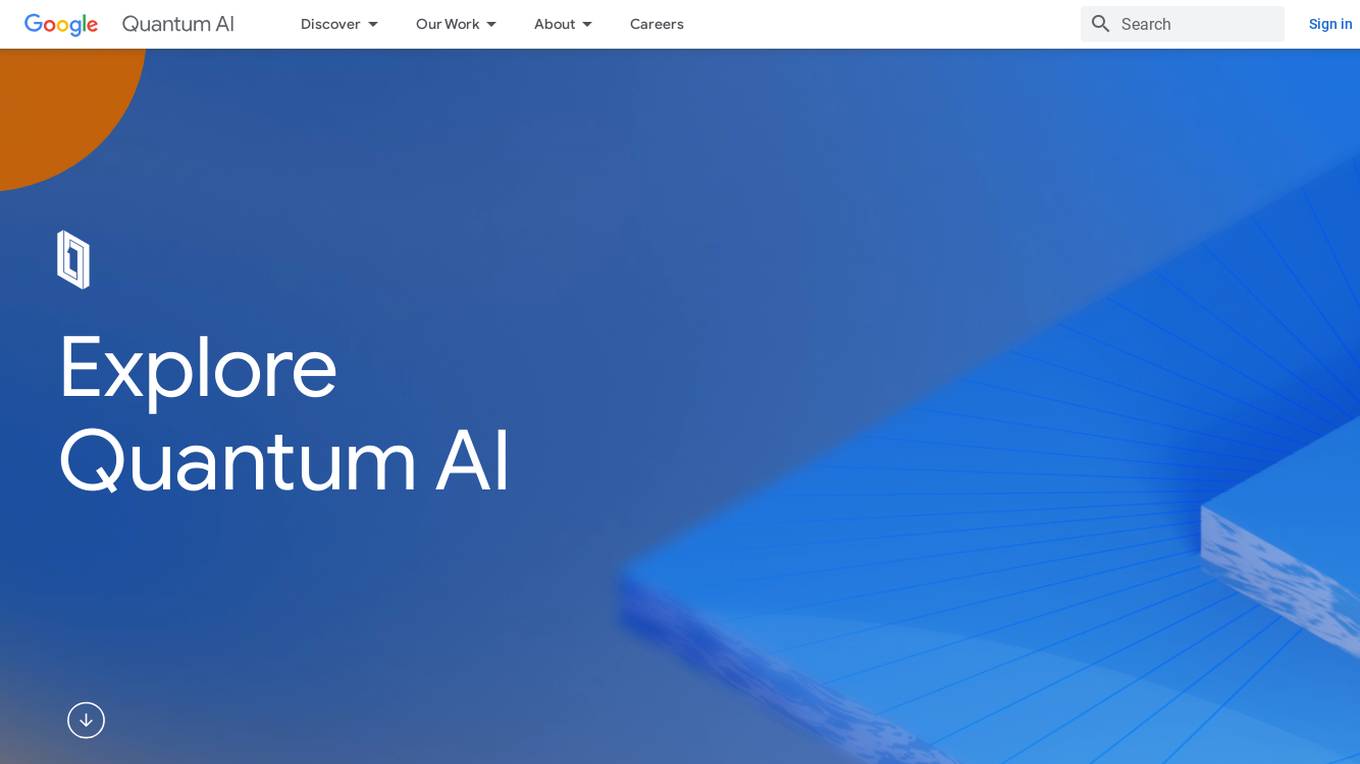
Google Quantum AI
Google Quantum AI is a leading platform dedicated to advancing the field of quantum computing. The platform offers educational resources, research publications, open-source tools like Cirq, and career opportunities. Google Quantum AI's mission is to build best-in-class quantum computing systems with error correction capabilities, enabling the solution of complex problems that are currently intractable for classical computers. The platform also hosts the XPRIZE Quantum Applications competition, collaborates with industry and academic partners to explore future applications of quantum computing, and shares research and blog posts on quantum algorithms and advancements.
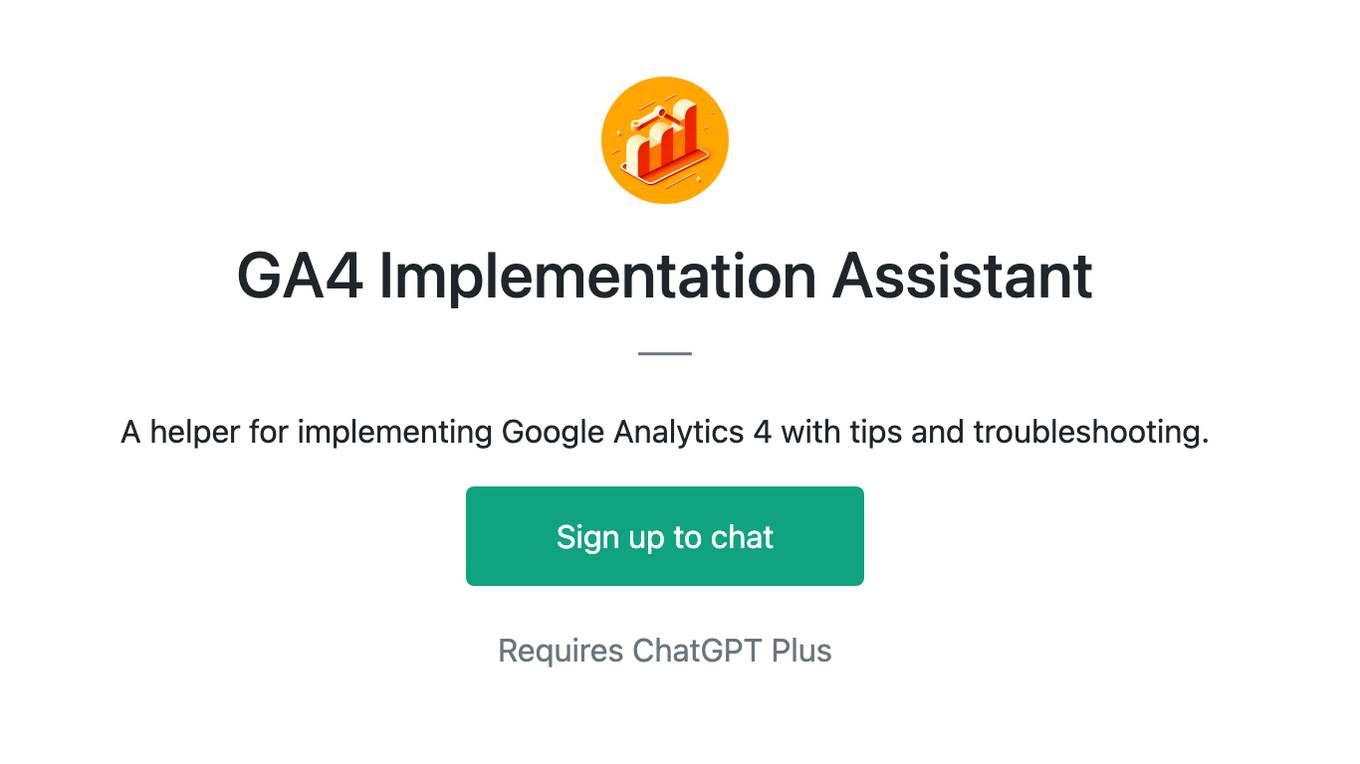
GA4 Implementation Assistant
A helper for implementing Google Analytics 4 with tips and troubleshooting.
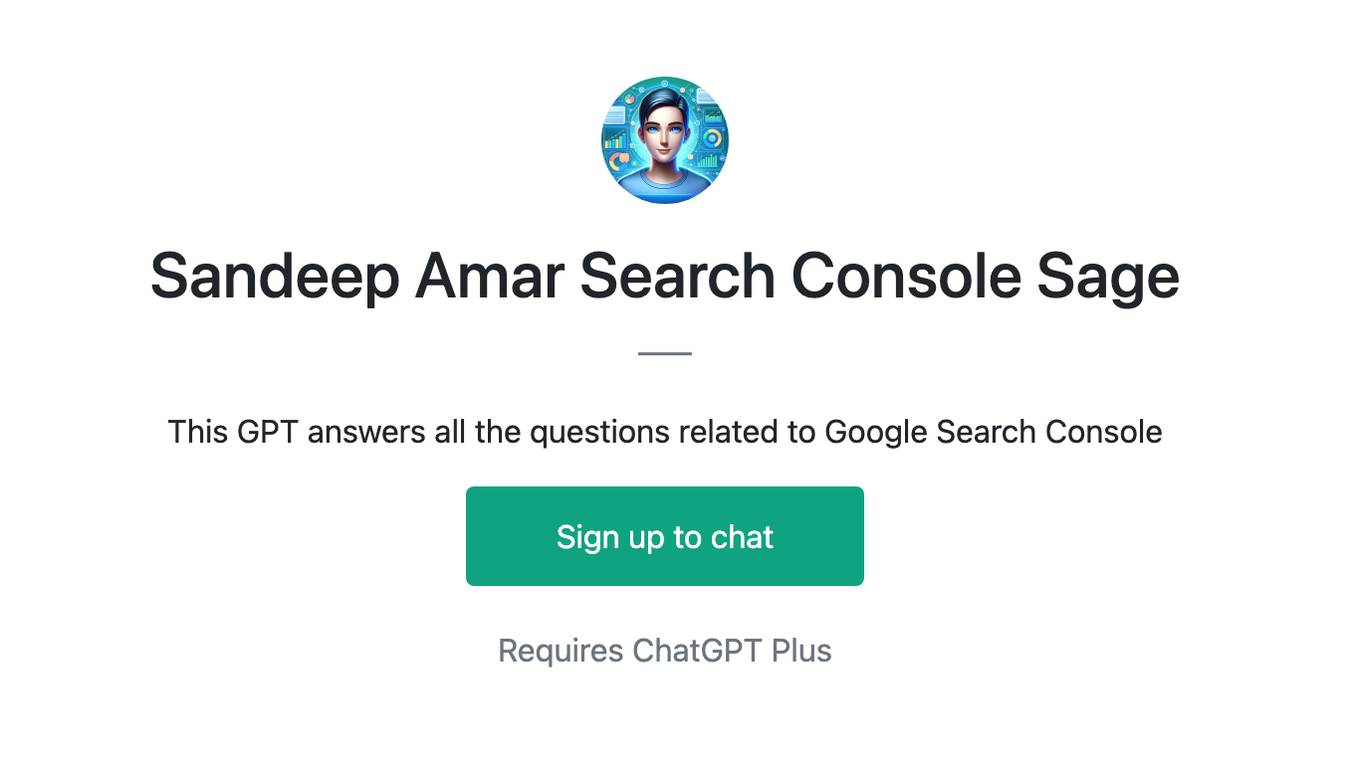
Sandeep Amar Search Console Sage
This GPT answers all the questions related to Google Search Console
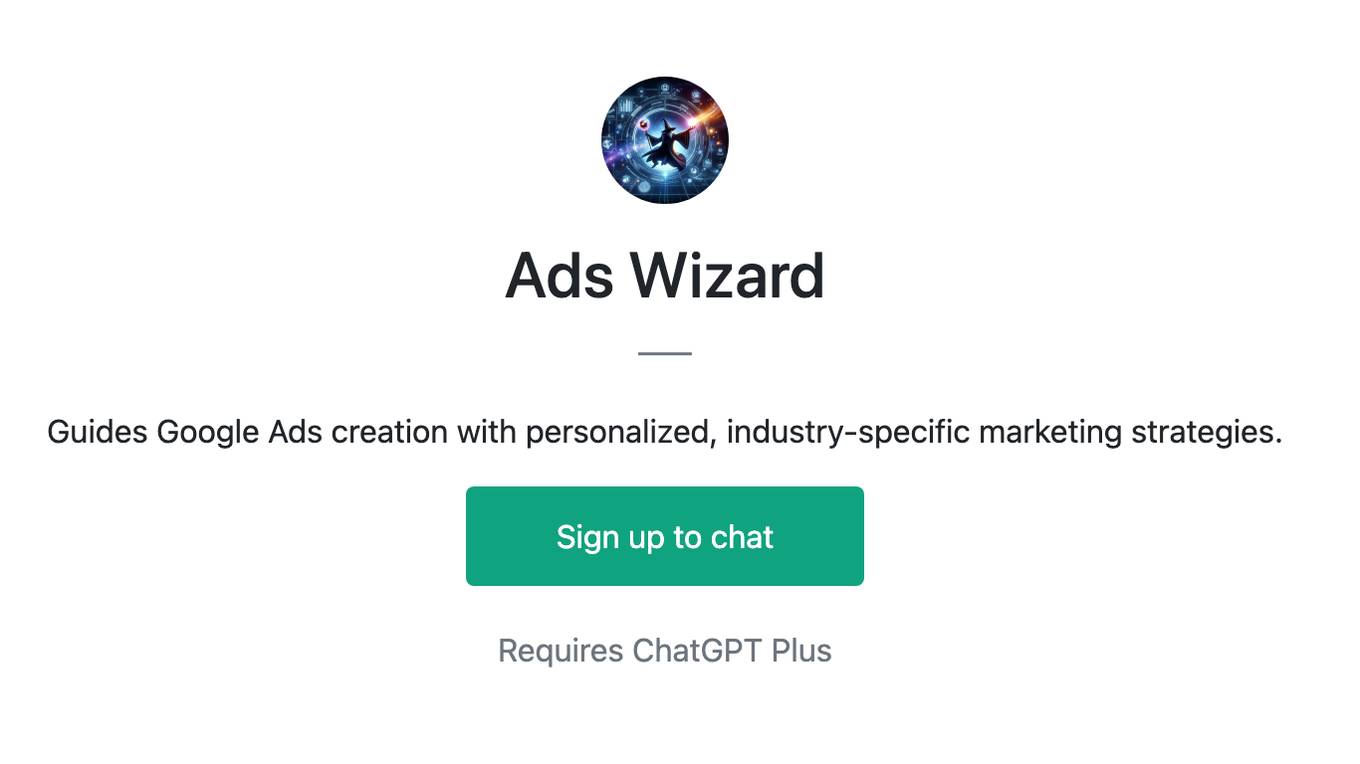
Ads Wizard
Guides Google Ads creation with personalized, industry-specific marketing strategies.
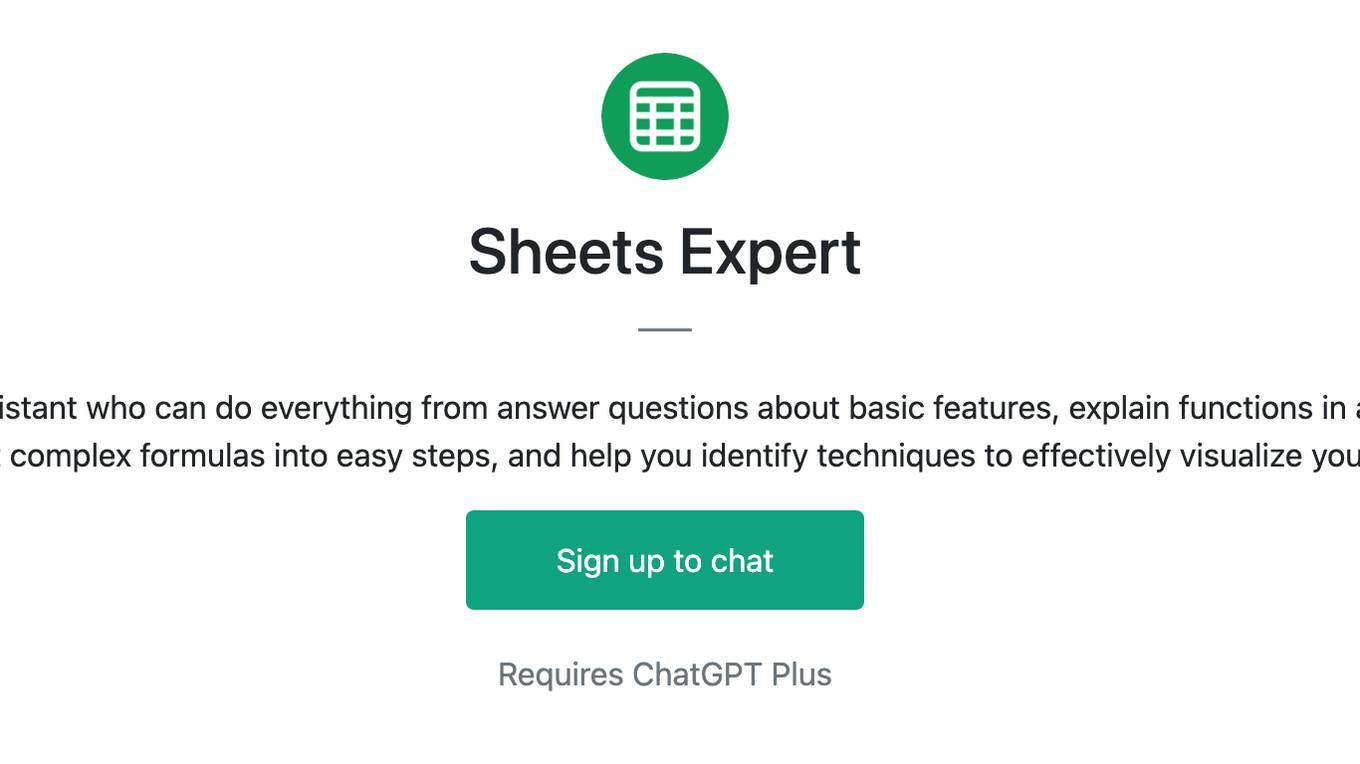
Sheets Expert
Master the art of Google Sheets with an assistant who can do everything from answer questions about basic features, explain functions in an eloquent and succinct manner, simplify the most complex formulas into easy steps, and help you identify techniques to effectively visualize your data.
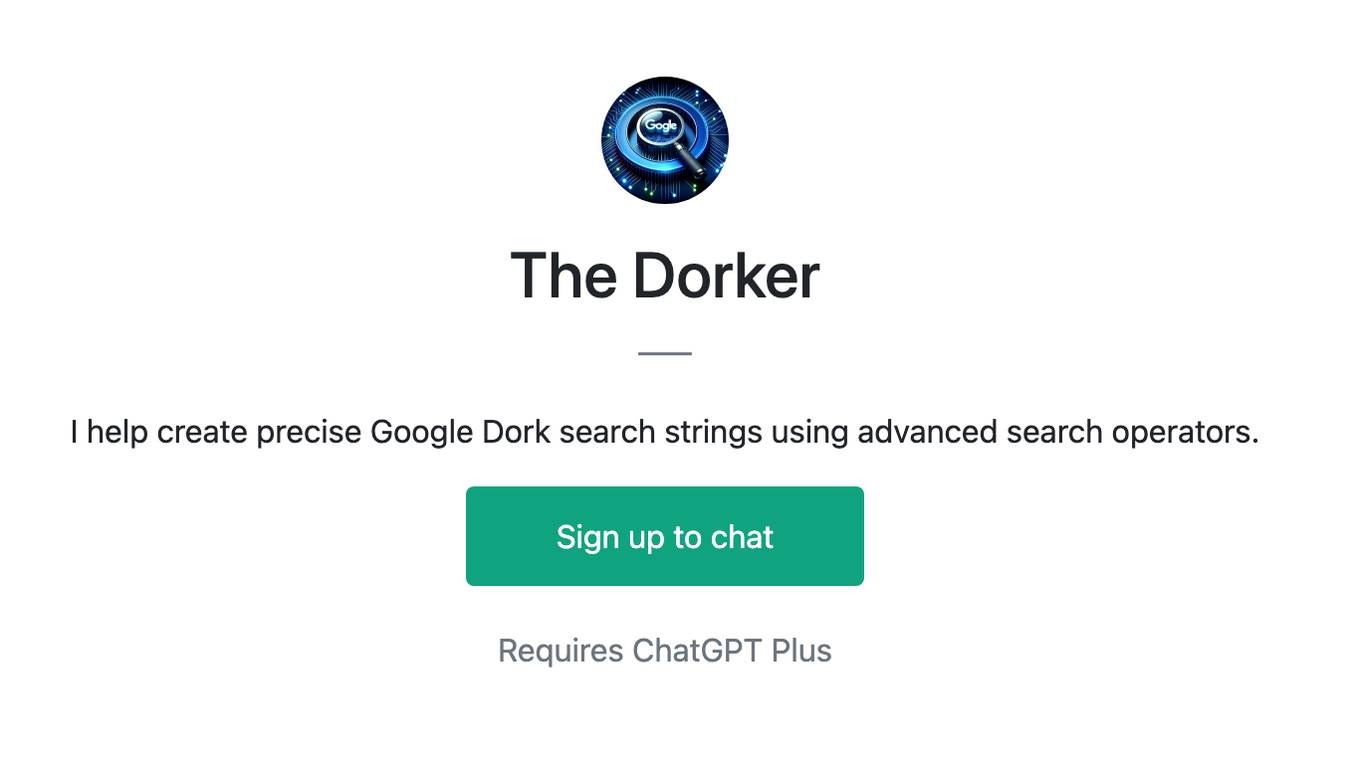
The Dorker
I help create precise Google Dork search strings using advanced search operators.
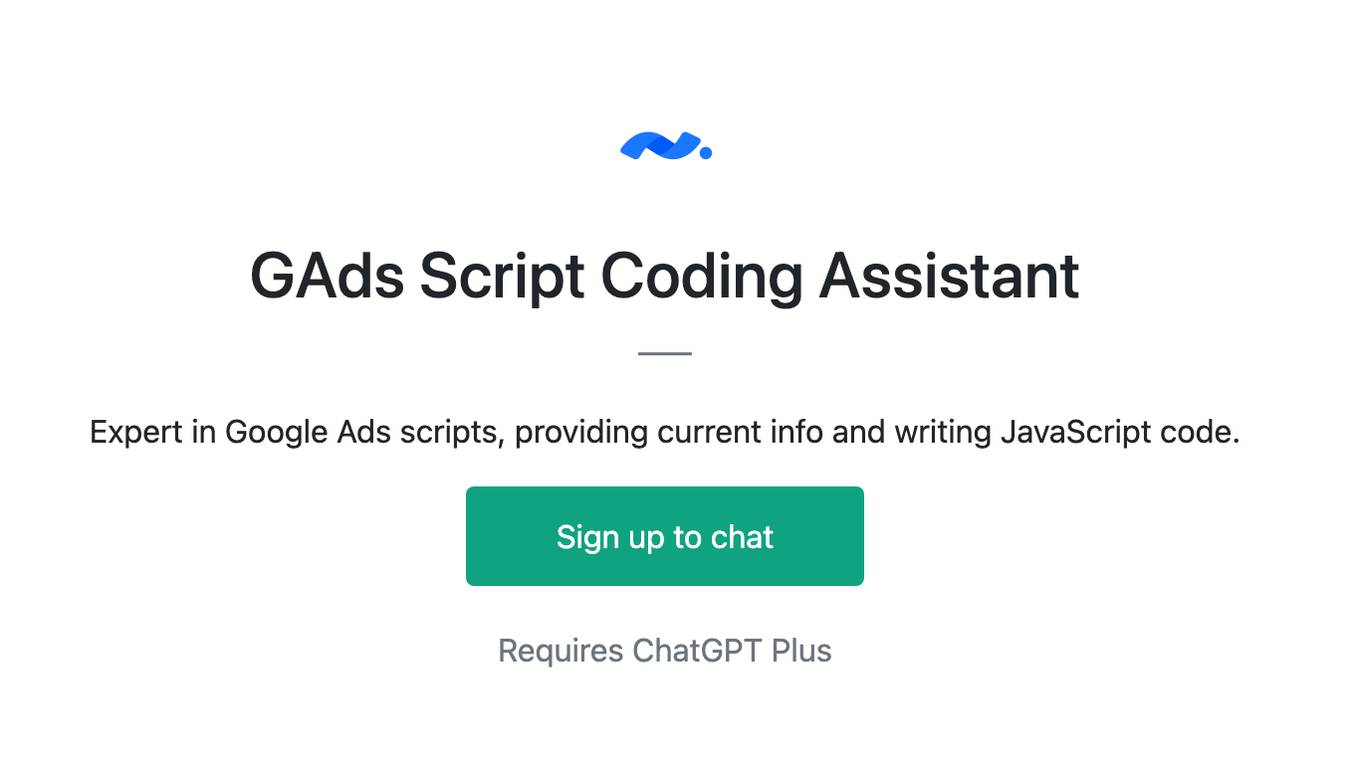
GAds Script Coding Assistant
Expert in Google Ads scripts, providing current info and writing JavaScript code.

oss-fuzz-gen
This framework generates fuzz targets for real-world `C`/`C++` projects with various Large Language Models (LLM) and benchmarks them via the `OSS-Fuzz` platform. It manages to successfully leverage LLMs to generate valid fuzz targets (which generate non-zero coverage increase) for 160 C/C++ projects. The maximum line coverage increase is 29% from the existing human-written targets.
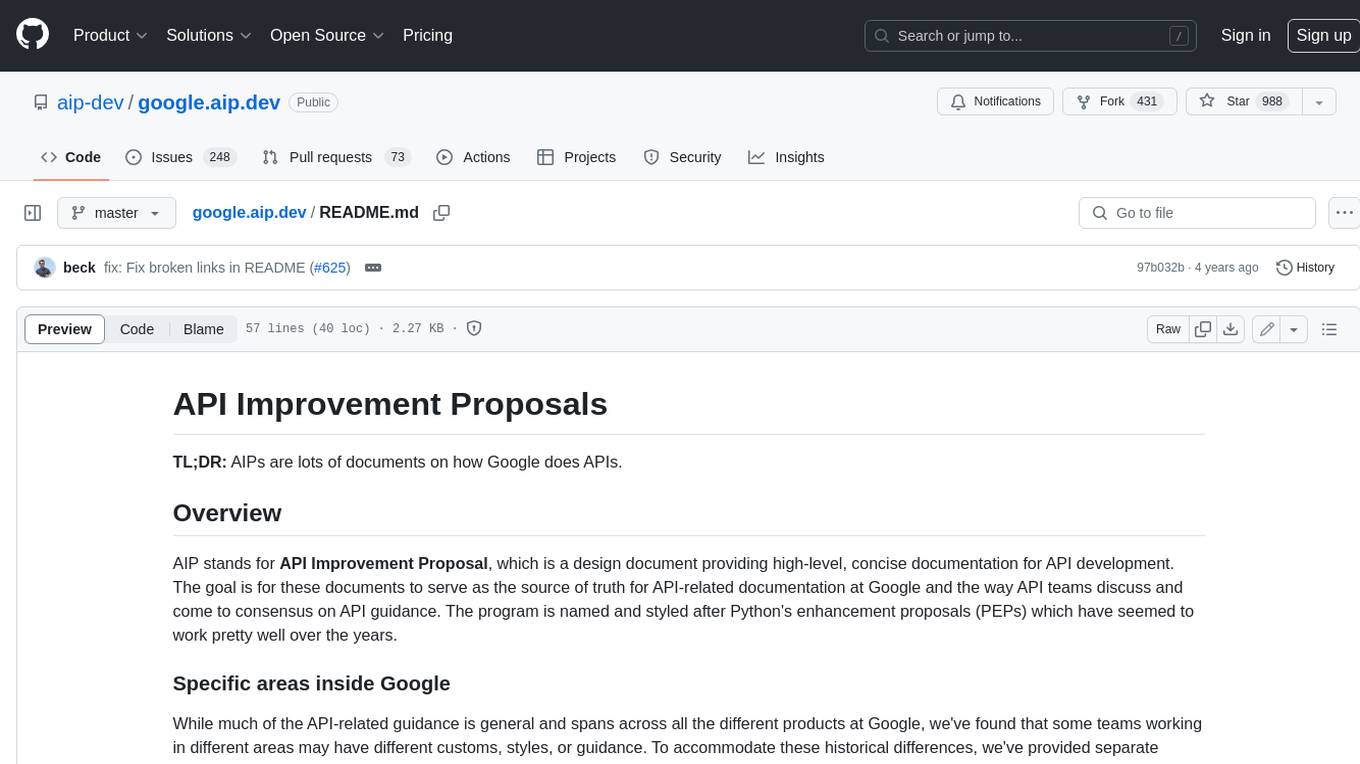
google.aip.dev
API Improvement Proposals (AIPs) are design documents that provide high-level, concise documentation for API development at Google. The goal of AIPs is to serve as the source of truth for API-related documentation and to facilitate discussion and consensus among API teams. AIPs are similar to Python's enhancement proposals (PEPs) and are organized into different areas within Google to accommodate historical differences in customs, styles, and guidance.
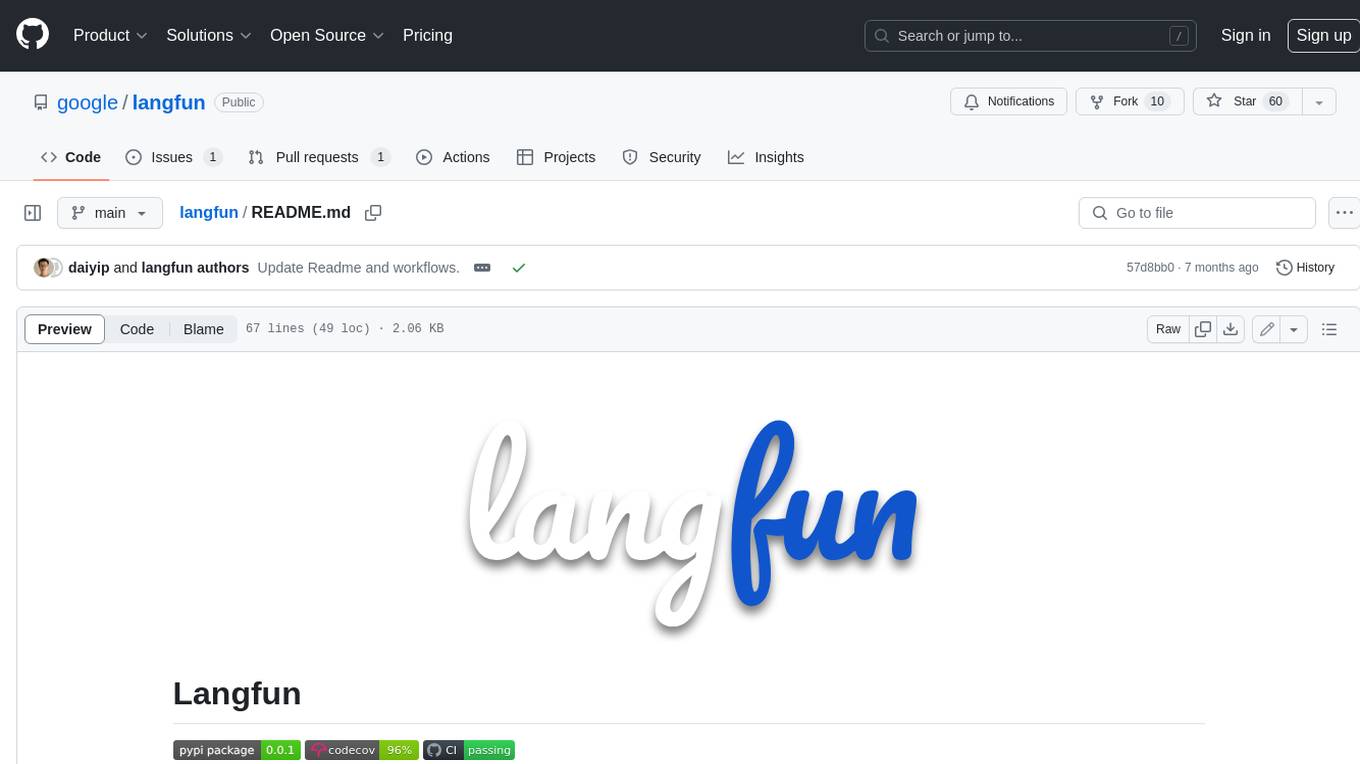
langfun
Langfun is a Python library that aims to make language models (LM) fun to work with. It enables a programming model that flows naturally, resembling the human thought process. Langfun emphasizes the reuse and combination of language pieces to form prompts, thereby accelerating innovation. Unlike other LM frameworks, which feed program-generated data into the LM, langfun takes a distinct approach: It starts with natural language, allowing for seamless interactions between language and program logic, and concludes with natural language and optional structured output. Consequently, langfun can aptly be described as Language as functions, capturing the core of its methodology.
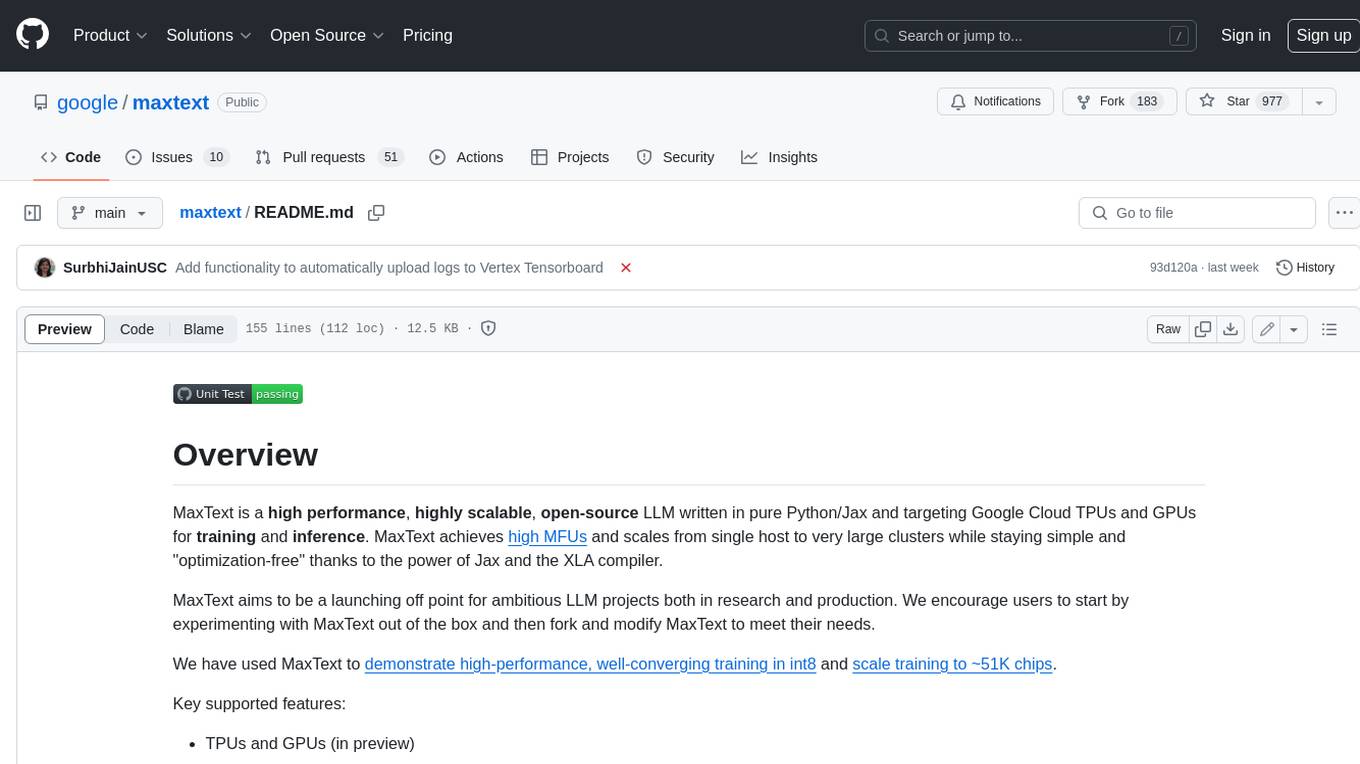
maxtext
MaxText is a high-performance, highly scalable, open-source LLM written in pure Python/Jax and targeting Google Cloud TPUs and GPUs for training and inference. MaxText achieves high MFUs and scales from single host to very large clusters while staying simple and "optimization-free" thanks to the power of Jax and the XLA compiler. MaxText aims to be a launching off point for ambitious LLM projects both in research and production. We encourage users to start by experimenting with MaxText out of the box and then fork and modify MaxText to meet their needs.
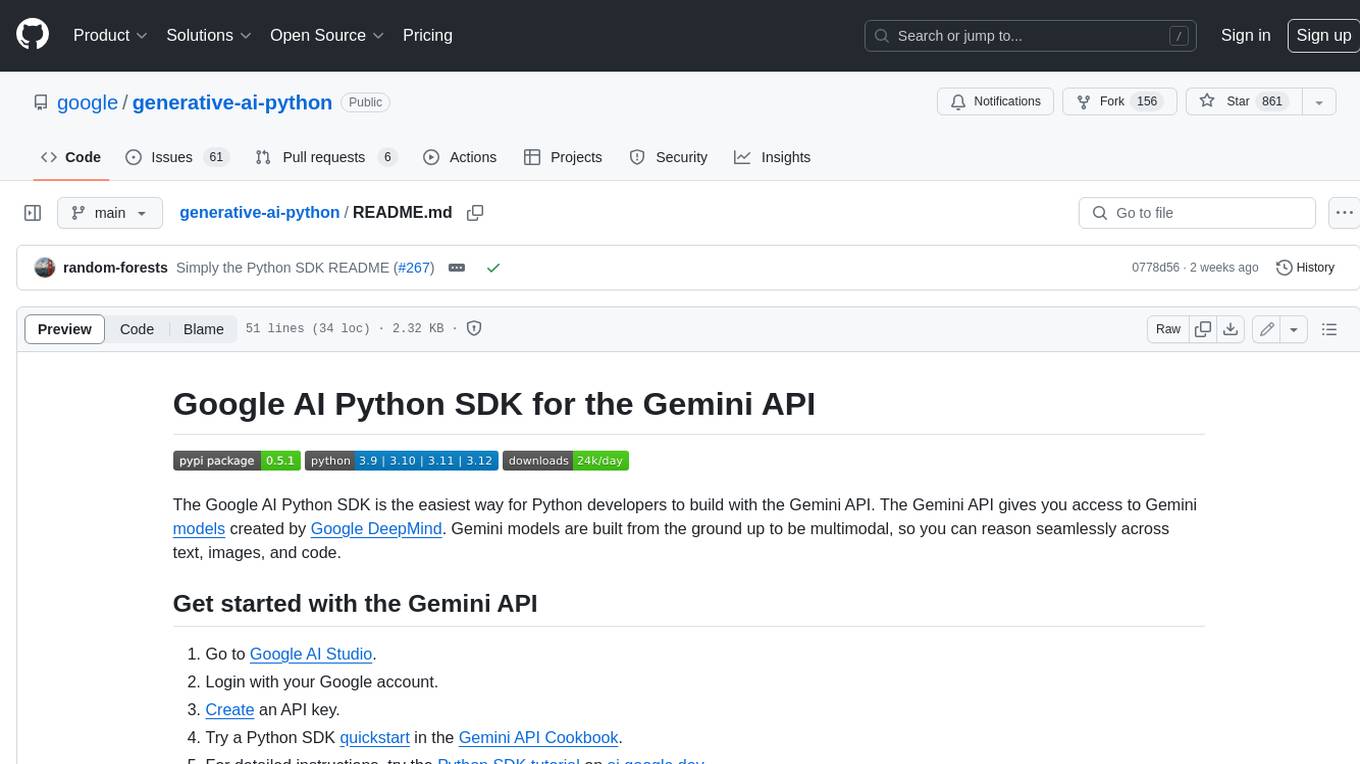
generative-ai-python
The Google AI Python SDK is the easiest way for Python developers to build with the Gemini API. The Gemini API gives you access to Gemini models created by Google DeepMind. Gemini models are built from the ground up to be multimodal, so you can reason seamlessly across text, images, and code.
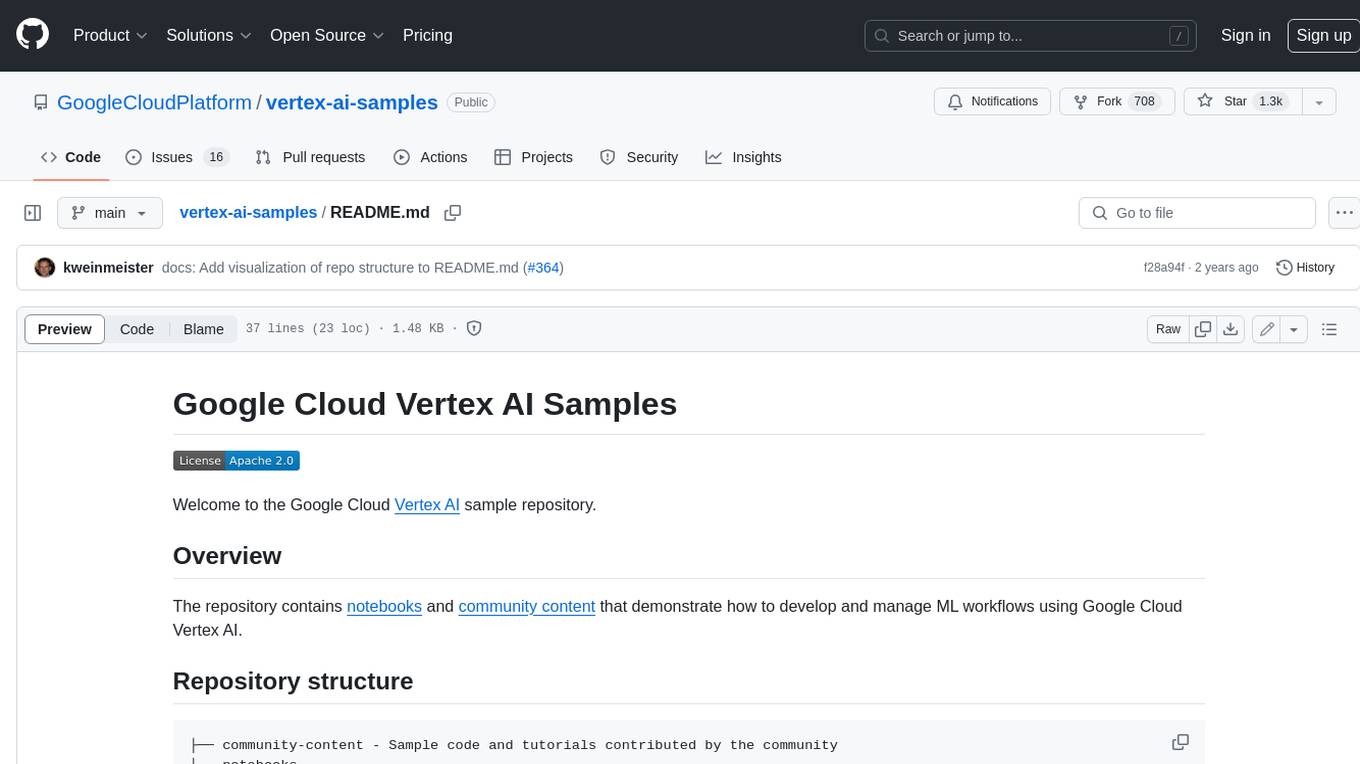
vertex-ai-samples
The Google Cloud Vertex AI sample repository contains notebooks and community content that demonstrate how to develop and manage ML workflows using Google Cloud Vertex AI.
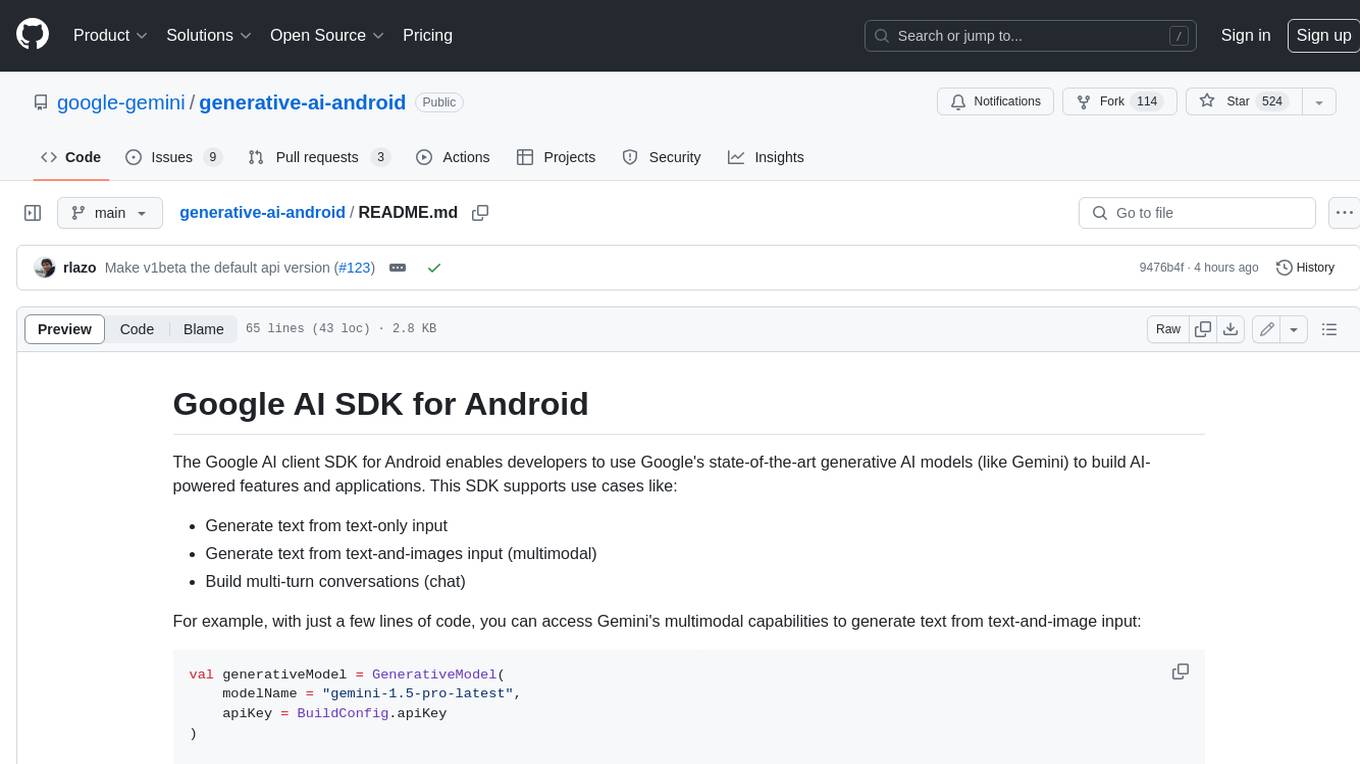
generative-ai-android
The Google AI client SDK for Android enables developers to use Google's state-of-the-art generative AI models (like Gemini) to build AI-powered features and applications. This SDK supports use cases like: - Generate text from text-only input - Generate text from text-and-images input (multimodal) - Build multi-turn conversations (chat)
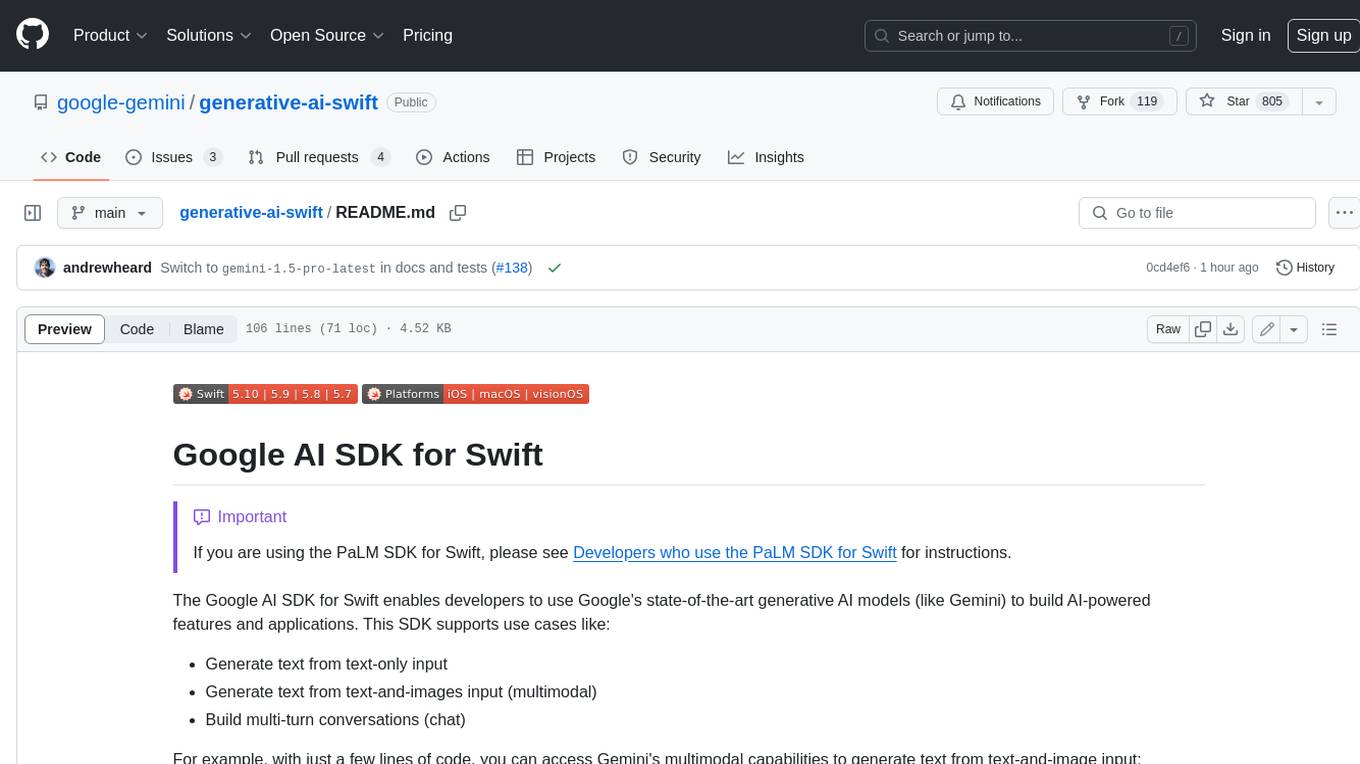
generative-ai-swift
The Google AI SDK for Swift enables developers to use Google's state-of-the-art generative AI models (like Gemini) to build AI-powered features and applications. This SDK supports use cases like: - Generate text from text-only input - Generate text from text-and-images input (multimodal) - Build multi-turn conversations (chat)
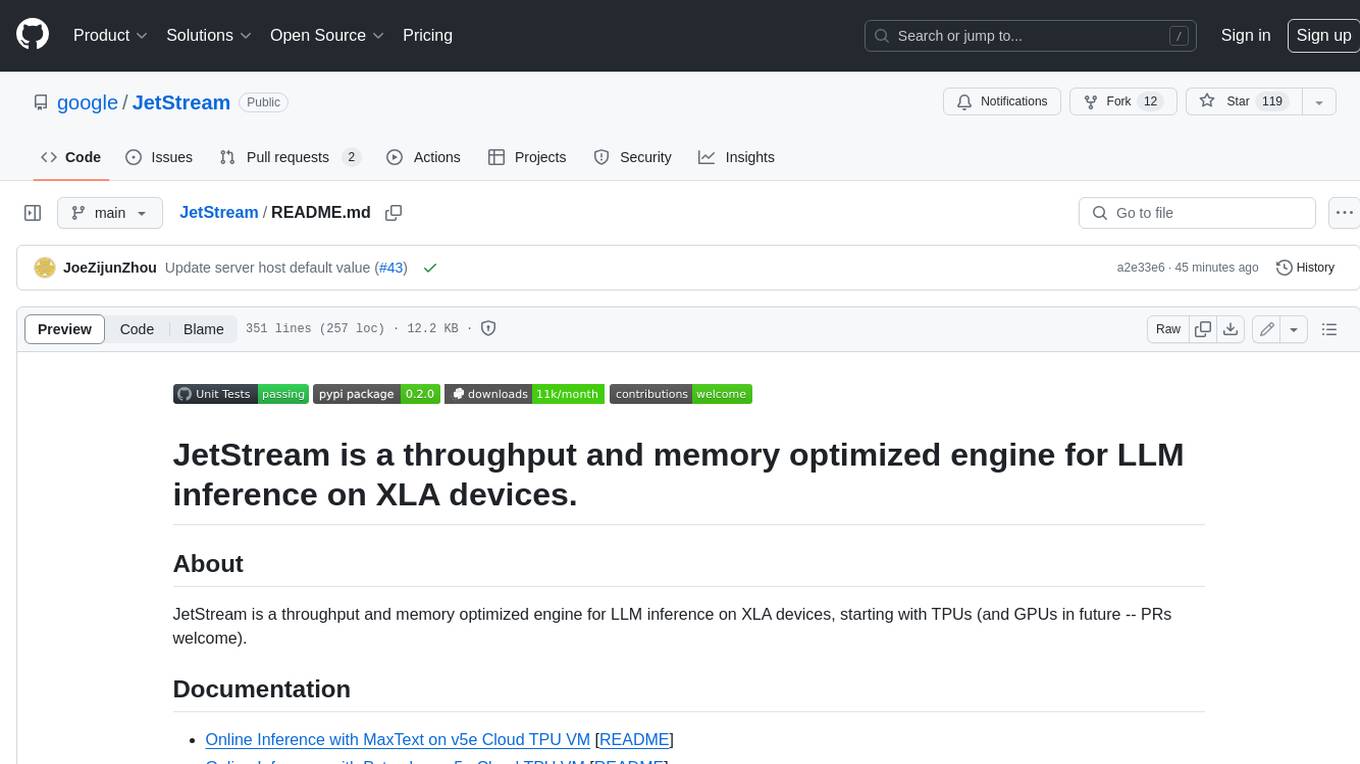
JetStream
JetStream is a throughput and memory optimized engine for LLM inference on XLA devices, starting with TPUs (and GPUs in future -- PRs welcome). It is designed to provide high performance and scalability for large language models, enabling efficient inference on cloud-based TPUs. JetStream leverages XLA to optimize the execution of LLM models, resulting in faster and more efficient inference. Additionally, JetStream supports quantization techniques to further enhance performance and reduce memory consumption. By utilizing JetStream, developers can deploy and run LLM models on TPUs with ease, achieving optimal performance and cost-effectiveness.
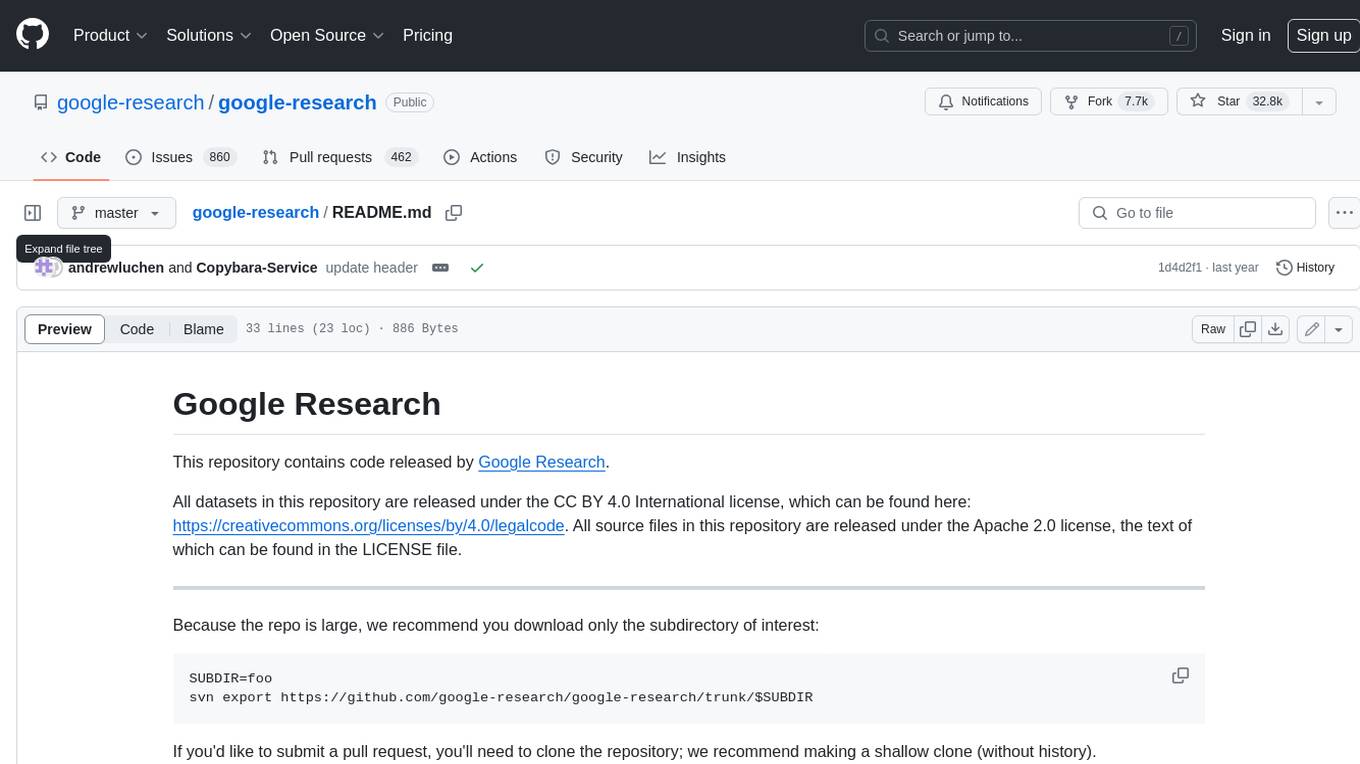
google-research
This repository contains code released by Google Research. All datasets in this repository are released under the CC BY 4.0 International license, which can be found here: https://creativecommons.org/licenses/by/4.0/legalcode. All source files in this repository are released under the Apache 2.0 license, the text of which can be found in the LICENSE file.
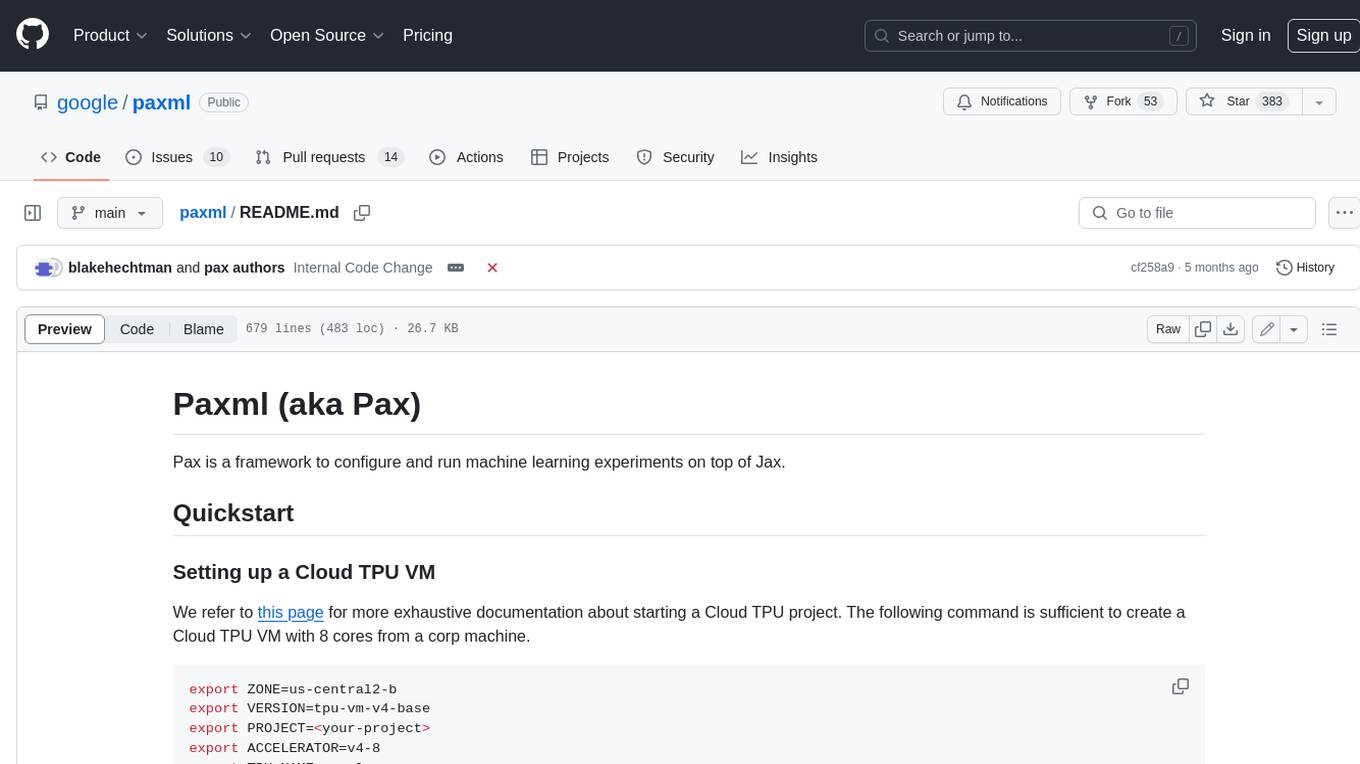
paxml
Pax is a framework to configure and run machine learning experiments on top of Jax.
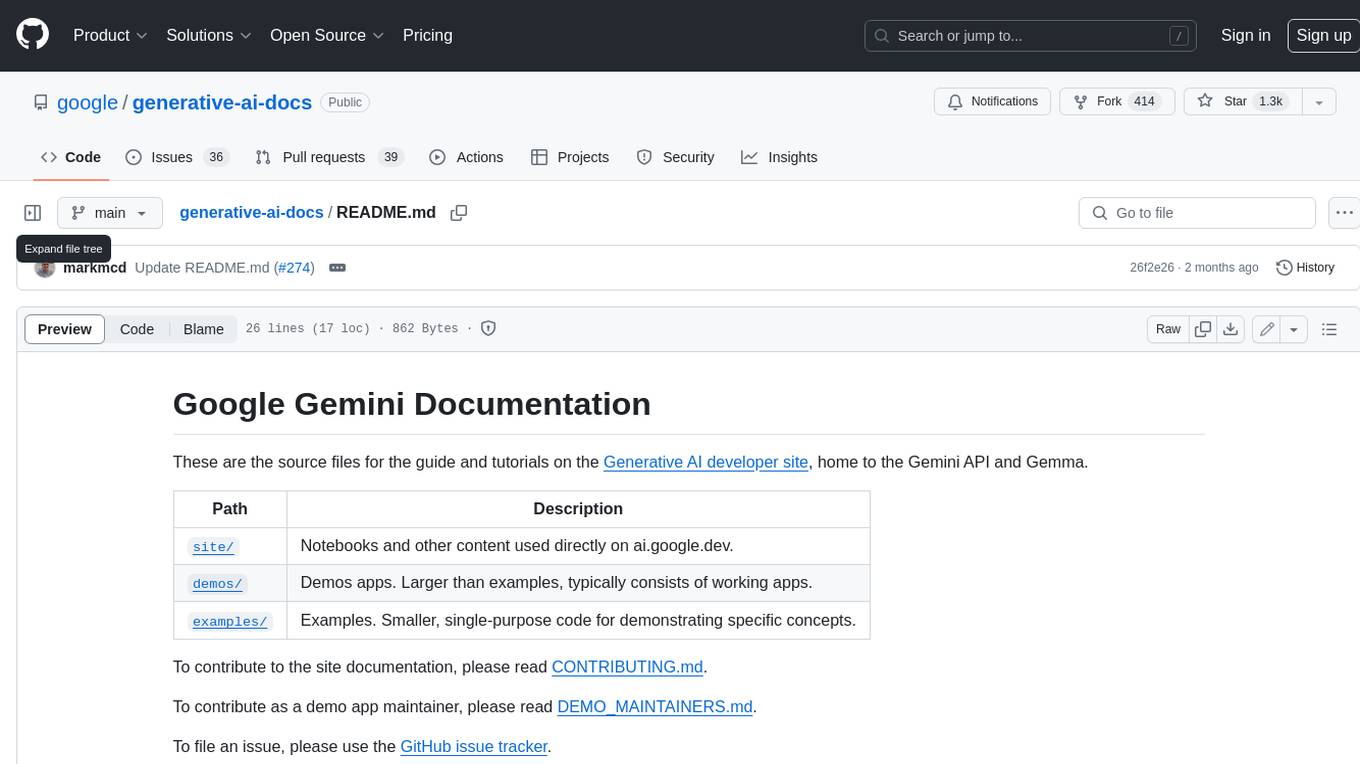
generative-ai-docs
The Google Gemini Documentation repository contains the source files for the guide and tutorials on the Generative AI developer site, which is home to the Gemini API and Gemma. The repository includes notebooks and other content used directly on ai.google.dev, as well as demos and examples. To contribute to the site documentation, please read CONTRIBUTING.md. To contribute as a demo app maintainer, please read DEMO_MAINTAINERS.md. To file an issue, please use the GitHub issue tracker.

generative-ai-python
The Google AI Python SDK is the easiest way for Python developers to build with the Gemini API. The Gemini API gives you access to Gemini models created by Google DeepMind. Gemini models are built from the ground up to be multimodal, so you can reason seamlessly across text, images, and code.
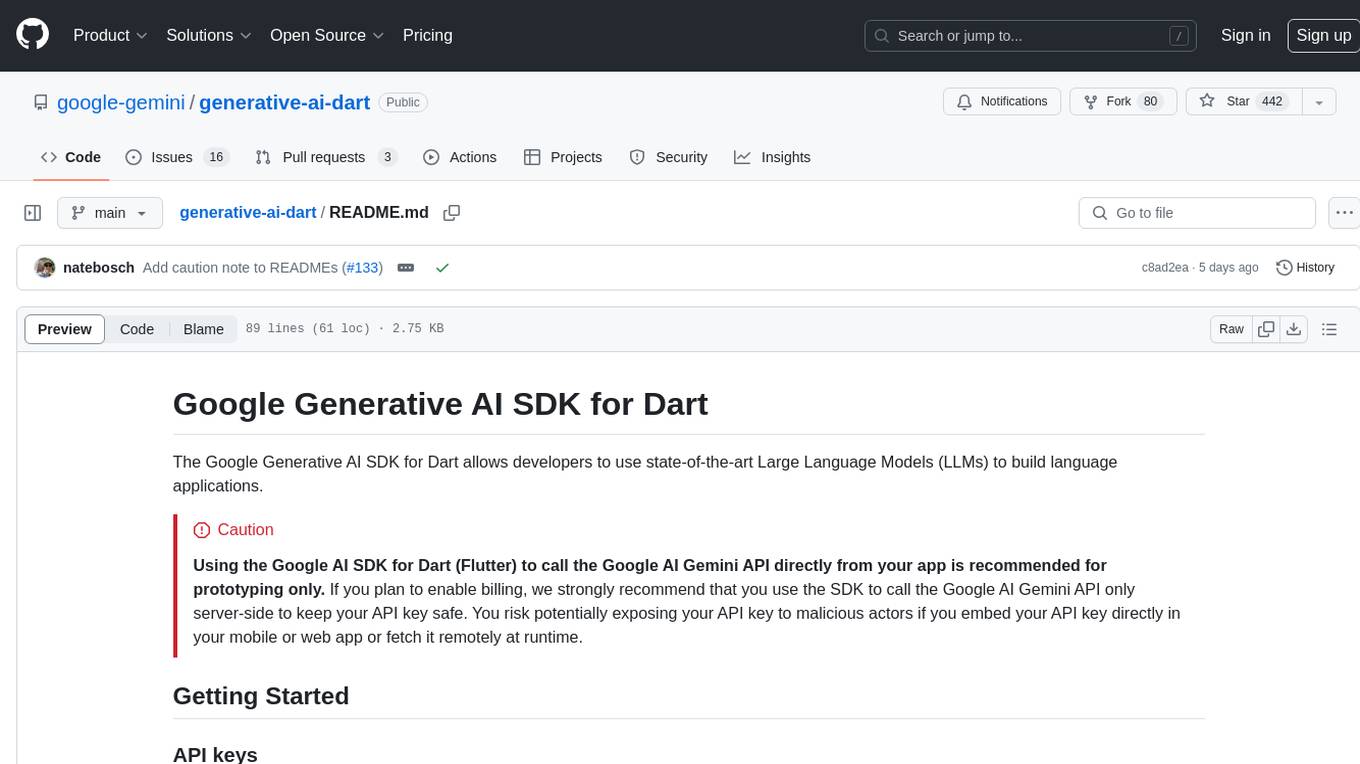
generative-ai-dart
The Google Generative AI SDK for Dart enables developers to utilize cutting-edge Large Language Models (LLMs) for creating language applications. It provides access to the Gemini API for generating content using state-of-the-art models. Developers can integrate the SDK into their Dart or Flutter applications to leverage powerful AI capabilities. It is recommended to use the SDK for server-side API calls to ensure the security of API keys and protect against potential key exposure in mobile or web apps.
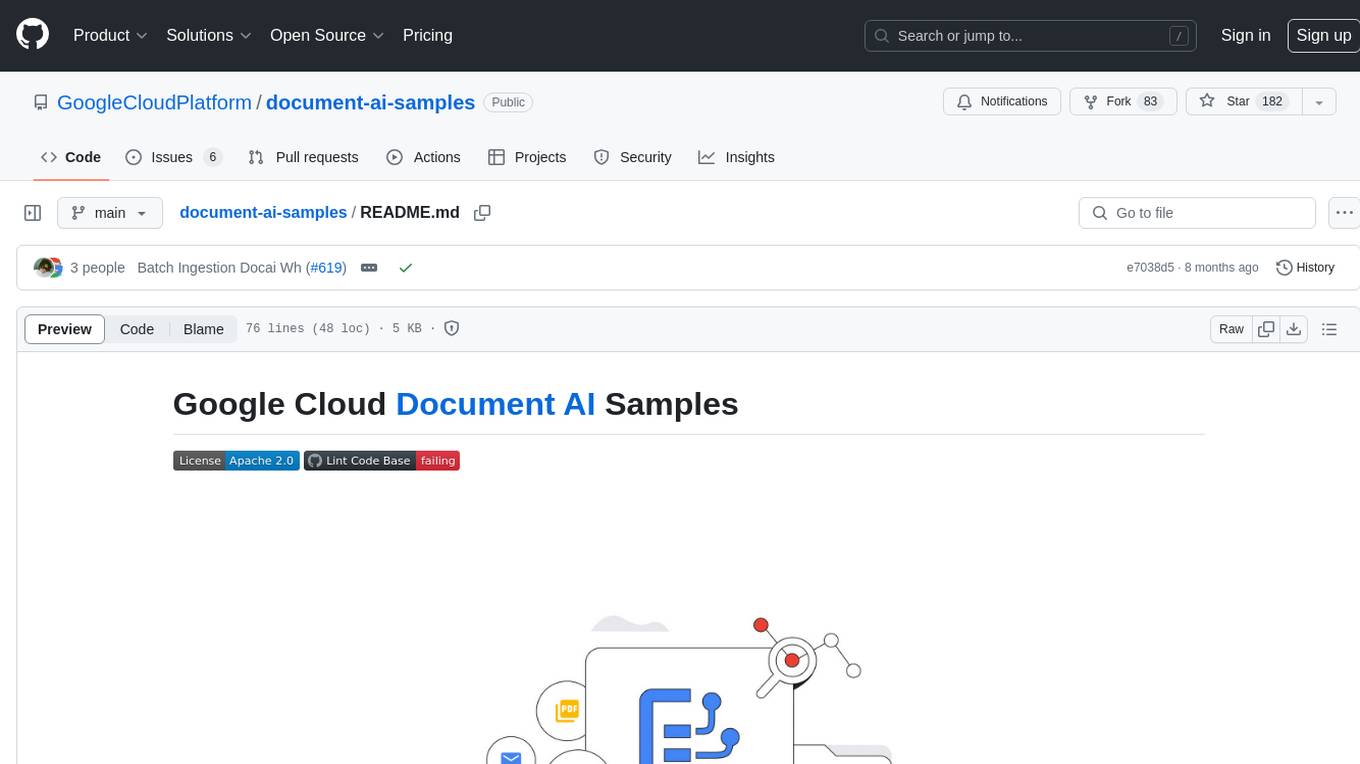
document-ai-samples
The Google Cloud Document AI Samples repository contains code samples and Community Samples demonstrating how to analyze, classify, and search documents using Google Cloud Document AI. It includes various projects showcasing different functionalities such as integrating with Google Drive, processing documents using Python, content moderation with Dialogflow CX, fraud detection, language extraction, paper summarization, tax processing pipeline, and more. The repository also provides access to test document files stored in a publicly-accessible Google Cloud Storage Bucket. Additionally, there are codelabs available for optical character recognition (OCR), form parsing, specialized processors, and managing Document AI processors. Community samples, like the PDF Annotator Sample, are also included. Contributions are welcome, and users can seek help or report issues through the repository's issues page. Please note that this repository is not an officially supported Google product and is intended for demonstrative purposes only.
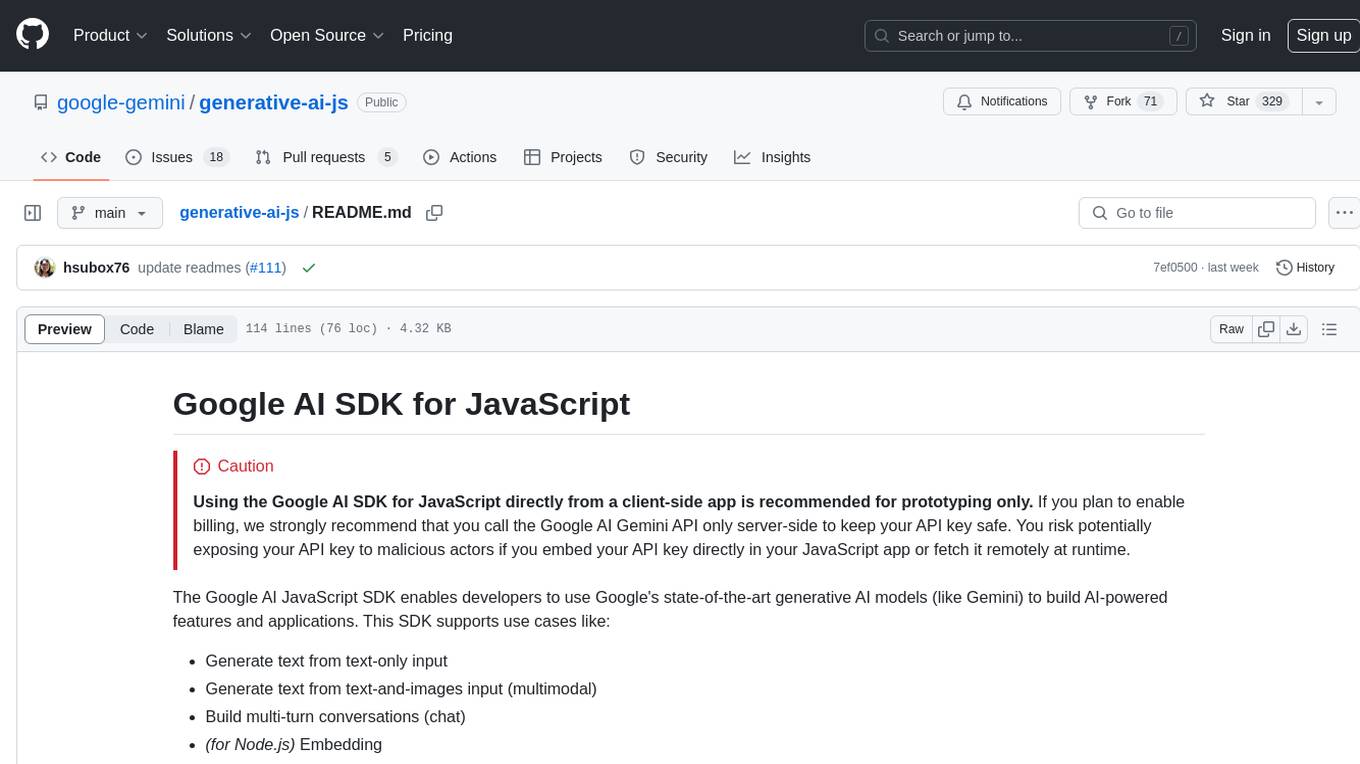
generative-ai-js
Generative AI JS is a JavaScript library that provides tools for creating generative art and music using artificial intelligence techniques. It allows users to generate unique and creative content by leveraging machine learning models. The library includes functions for generating images, music, and text based on user input and preferences. With Generative AI JS, users can explore the intersection of art and technology, experiment with different creative processes, and create dynamic and interactive content for various applications.
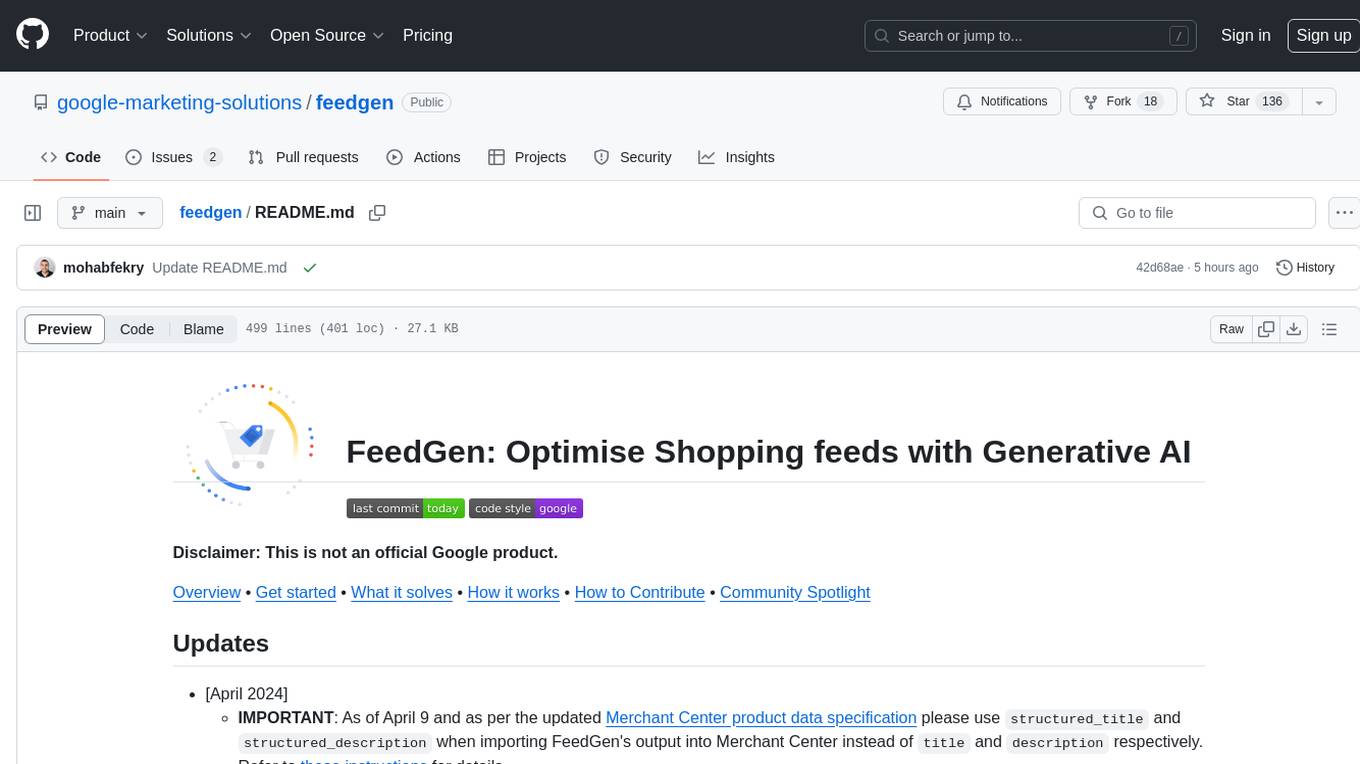
feedgen
FeedGen is an open-source tool that uses Google Cloud's state-of-the-art Large Language Models (LLMs) to improve product titles, generate more comprehensive descriptions, and fill missing attributes in product feeds. It helps merchants and advertisers surface and fix quality issues in their feeds using Generative AI in a simple and configurable way. The tool relies on GCP's Vertex AI API to provide both zero-shot and few-shot inference capabilities on GCP's foundational LLMs. With few-shot prompting, users can customize the model's responses towards their own data, achieving higher quality and more consistent output. FeedGen is an Apps Script based application that runs as an HTML sidebar in Google Sheets, allowing users to optimize their feeds with ease.
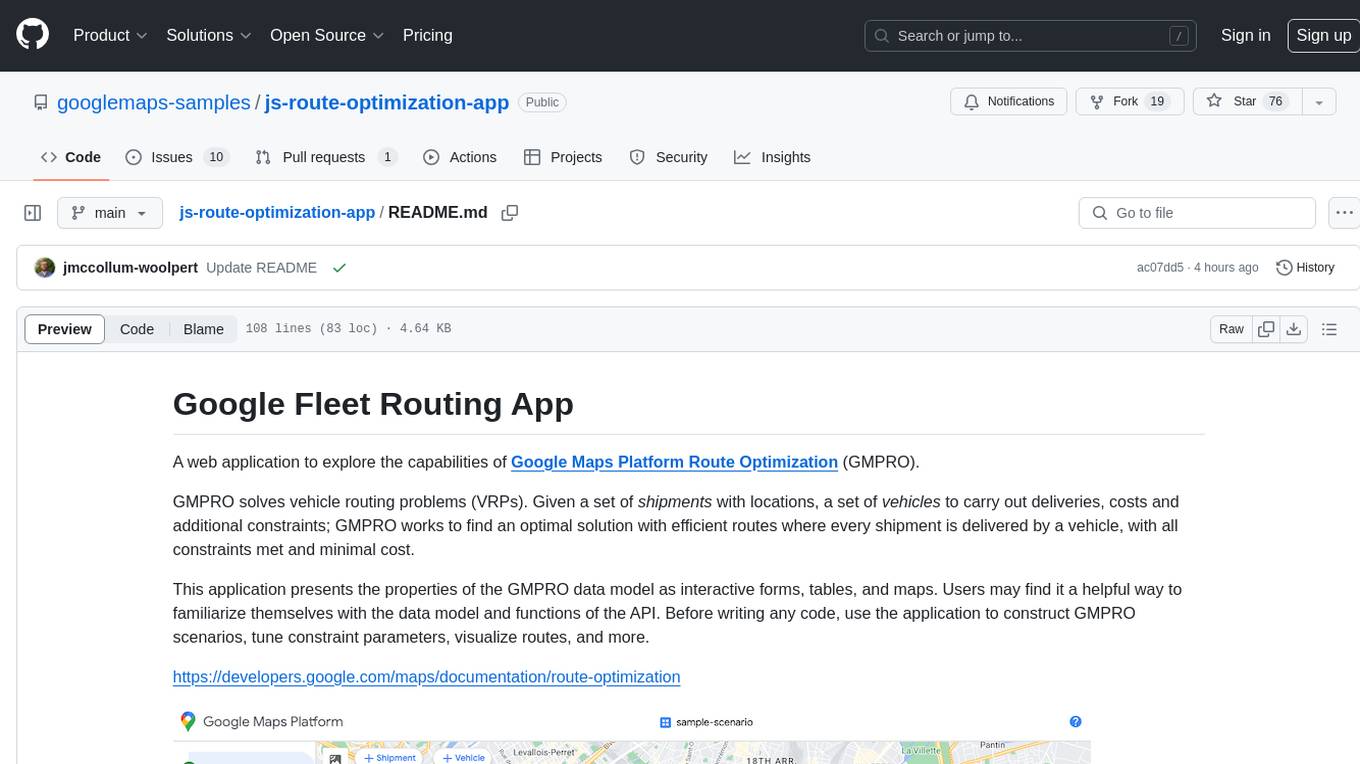
js-route-optimization-app
A web application to explore the capabilities of Google Maps Platform Route Optimization (GMPRO) for solving vehicle routing problems. Users can interact with the GMPRO data model through forms, tables, and maps to construct scenarios, tune constraints, and visualize routes. The application is intended for exploration purposes only and should not be deployed in production. Users are responsible for billing related to cloud resources and API usage. It is important to understand the pricing models for Maps Platform and Route Optimization before using the application.
